Awarded fellowships
Awardees of an iCARE-2 fellowship are listed below

Carotenuto Pietro 
Fondazione Telethon, Italy
“Dissecting a novel strategy to Targeting of Mitochondria in Cancer”
Fellowship type: Reintegration
Year awarded: 2019
See achievementsRole of uL3 in the Crosstalk between Nucleolar Stress and Autophagy in Colon Cancer Cells.
The Pervasive Role of the miR-181 Family in Development, Neurodegeneration, and Cancer.
Targeting the MITF/APAF-1 axis as salvage therapy for MAPK inhibitors in resistant melanoma.
Cilia and Cancer: From Molecular Genetics to Therapeutic Strategies.
The NAMPT Inhibitor FK866 in Combination with Cisplatin Reduces Cholangiocarcinoma Cells Growth.

Cassani Marco 
St. Anne's university Hospital in Brno, Czech republic
“Mechanobiology-mediated nanoparticles-cells interactions to develop immunotherapy against breast cancer.”
Fellowship type: Outgoing
Year awarded: 2019
See achievementsTumor in 3D: In Vitro Complex Cellular Models to Improve Nanodrugs Cancer Therapy.
YAP Signaling Regulates the Cellular Uptake and Therapeutic Effect of Nanoparticles.
Emerging Strategies for Immunotherapy of Solid Tumors Using Lipid-Based Nanoparticles.
YAP Signaling Regulates the Cellular Uptake and Therapeutic Effect of Nanoparticles.
Emerging Strategies for Immunotherapy of Solid Tumors Using Lipid-Based Nanoparticles.
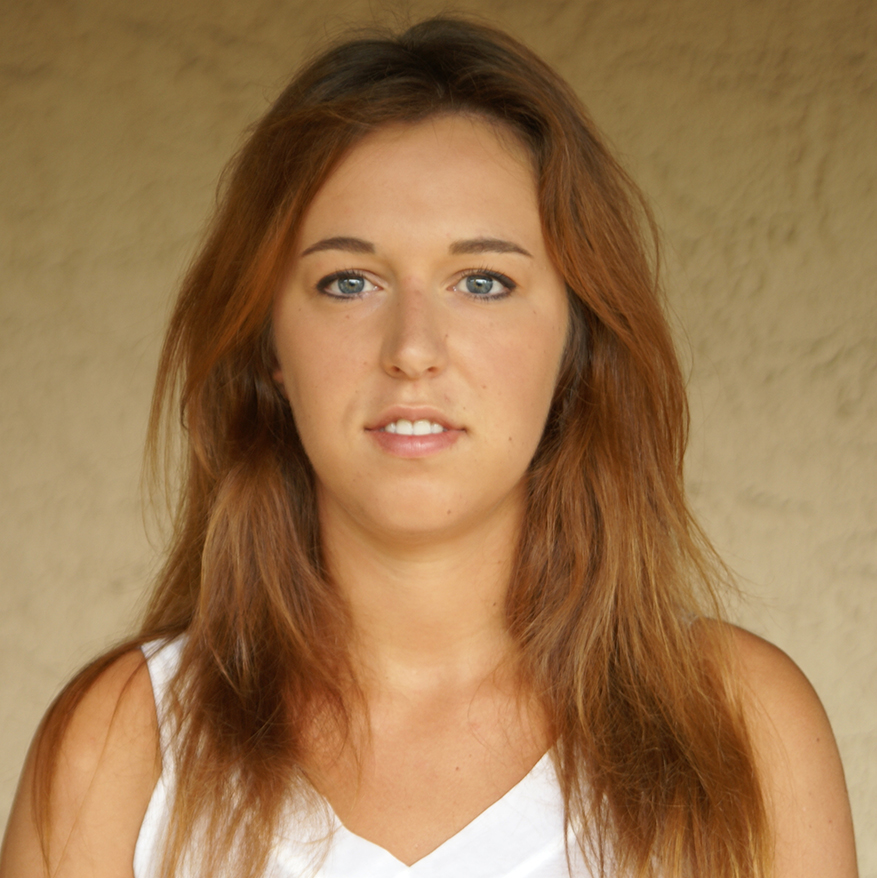
Cioni Bianca 
Fondazione I.R.C.C.S. Istituto Nazionale dei Tumori, Italy
“JMJD6-mediated Regulation of Hormonal Receptors in Breast and Prostate Cancer”
Fellowship type: Reintegration
Year awarded: 2019
See achievements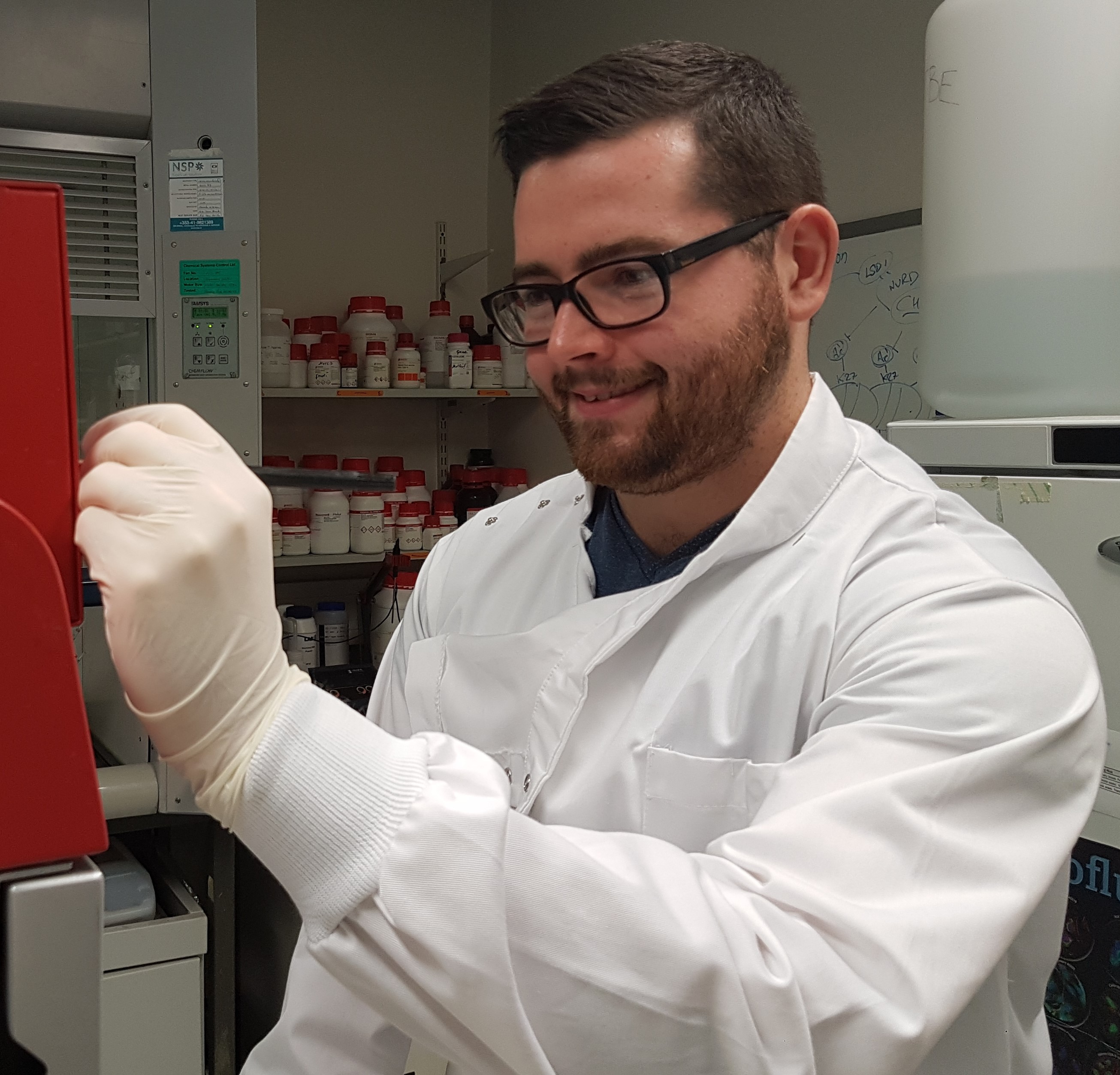
Conway Eric 
Istituto Europeo di Oncologia I.R.C.C.S. S.r.l, Italy
“Uncovering the Mode of Action of PRC2 mutations in T-ALL Development and Resistance to Targeted Therapy”
Fellowship type: Incoming
Year awarded: 2018
See achievements
Cortesi Filippo 
Universitaetsklinikum Hamburg-Eppendorf, Germany
“Unravel tumor-specific iNKT cell plasticity: from underlying mechanisms to targets”
Fellowship type: Outgoing
Year awarded: 2018
See achievements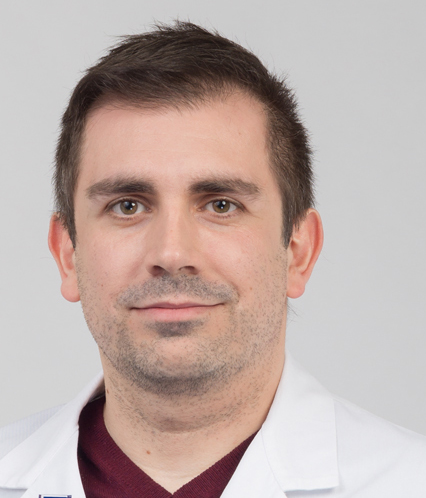
Desideri Enrico
Università degli Studi di Roma "Tor Vergata", Italy
“Role of Chaperone-Mediated Autophagy in Hepatocellular Carcinoma”
Fellowship type: Reintegration
Year awarded: 2018
See achievementsTargeting Glutathione Metabolism: Partner in Crime in Anticancer Therapy.
Impaired degradation of YAP1 and IL6ST by chaperone-mediated autophagy promotes proliferation and migration of normal and hepatocellular carcinoma cells.
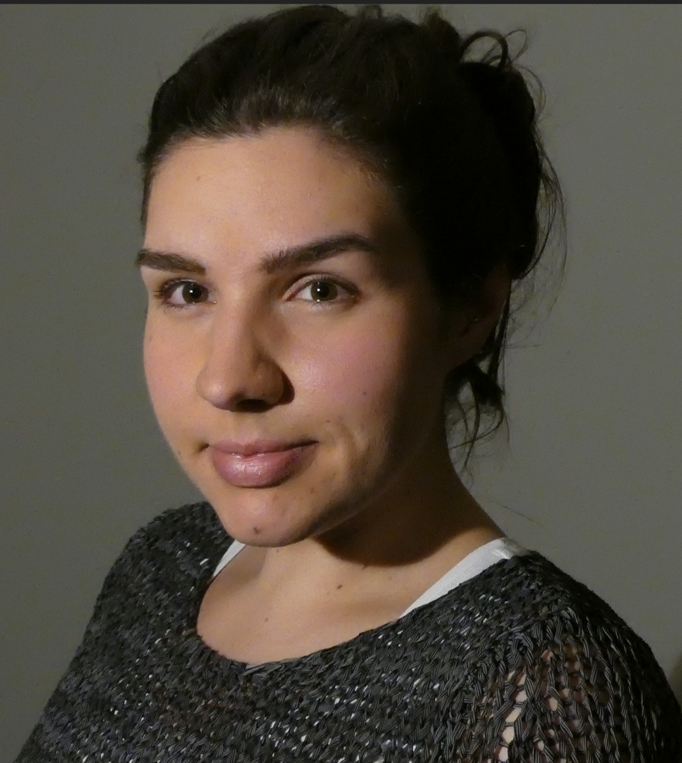
Ficht Xenia Maria 
Fondazione Centro San Raffaele, Italy
“Therapeutic potential of tissue-resident memory T cells in hepatocellular carcinoma”
Fellowship type: Incoming
Year awarded: 2019
See achievements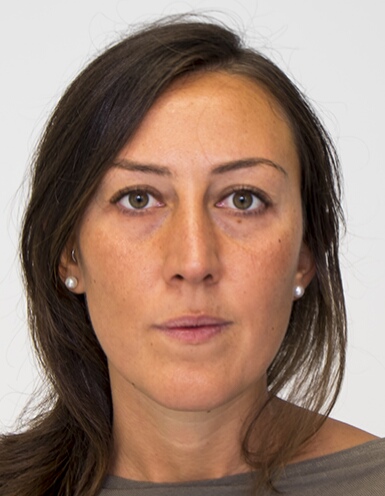
Landolina Nadine 
Ospedale Pediatrico Bambino Gesù, Italy
“IL-37/ TIR8: a crucial checkpoint in human NK cell function and anti-tumor activity”
Fellowship type: Reintegration
Year awarded: 2019
See achievements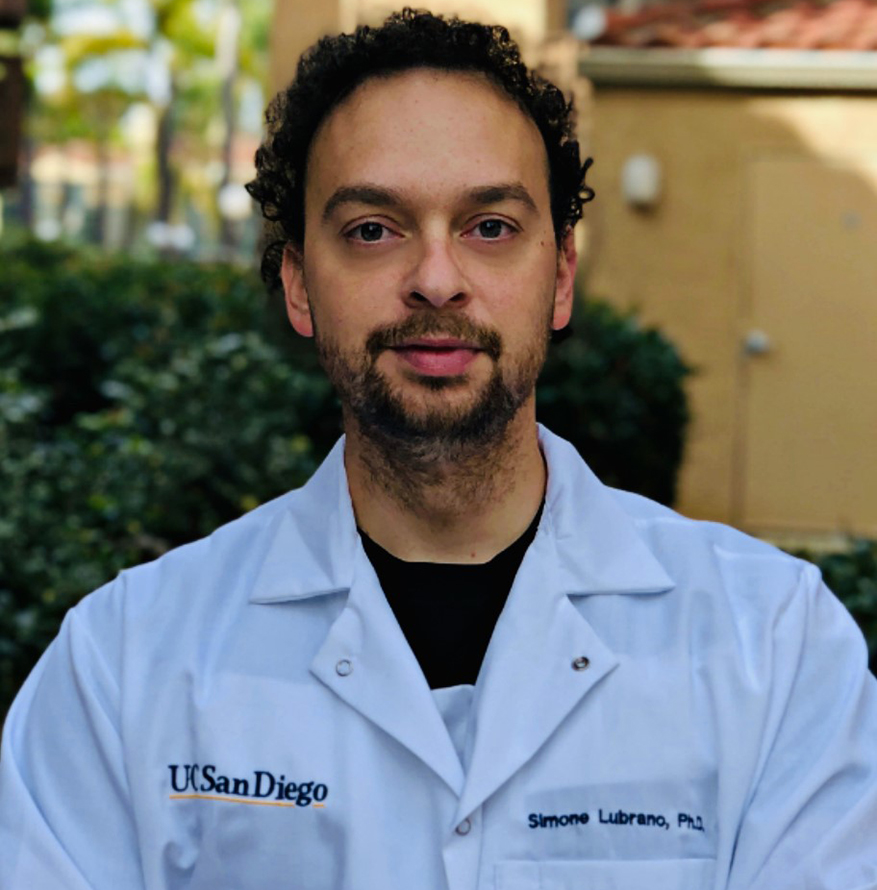
Lubrano Simone 
The Regents of University of California, La Jolla USA
“Targeting the novel Gαq-FAK-Hippo signaling circuitry for ocular melanoma precision therapy”
Fellowship type: Outgoing
Year awarded: 2019
See achievements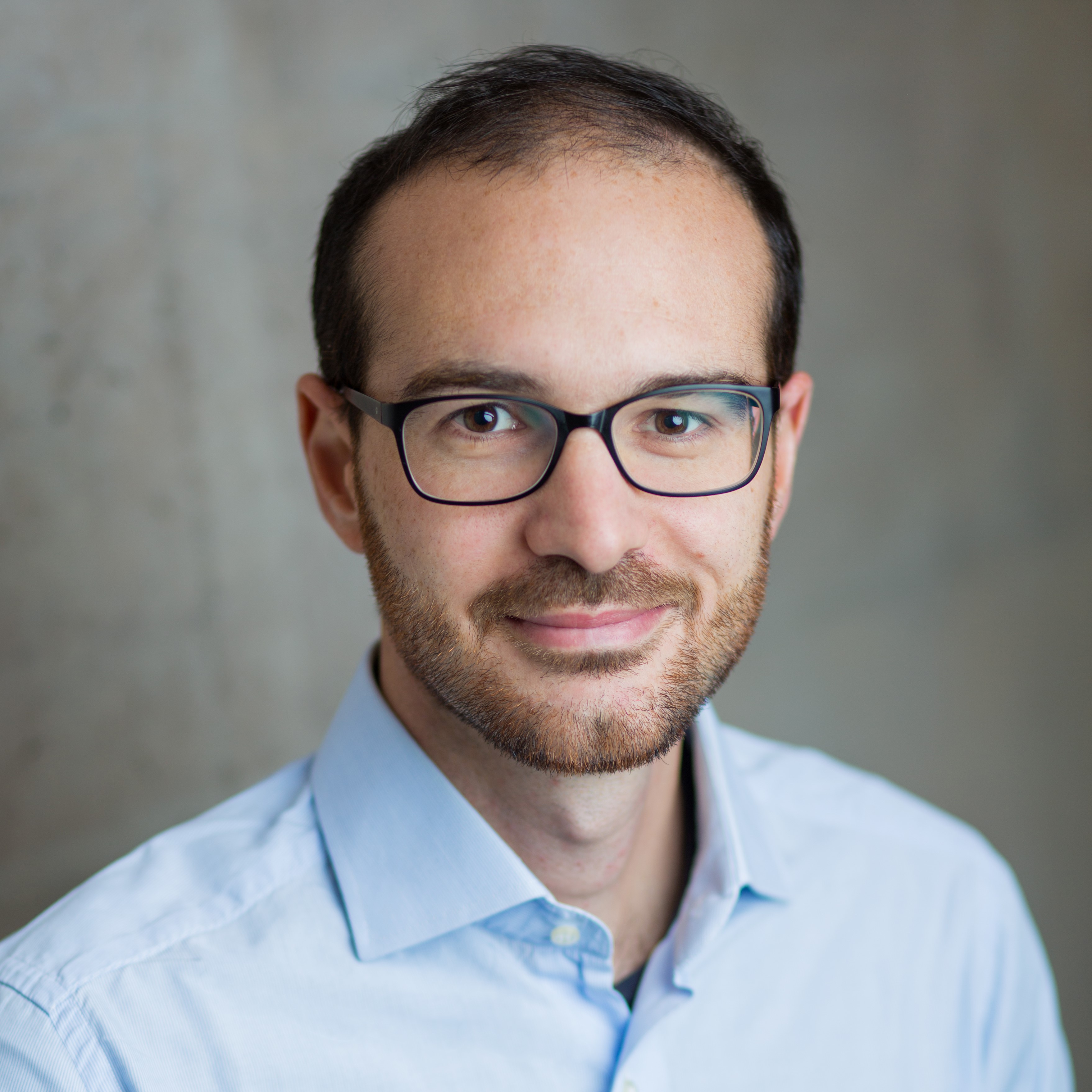
Massara Matteo 
University of Lausanne, Switzerland
“Elucidating the education and function of recruited macrophages and resident microglia in brain metastasis”
Fellowship type: Outgoing
Year awarded: 2018
See achievements
Nica Valentin 
Fondazione Istituto Italiano di Tecnologia, Italy
“Development of novel approaches using trimagnetic nanoparticles for intracellular hyperthermia of prostate cancer cells”
Fellowship type: Incoming
Year awarded: 2019
See achievements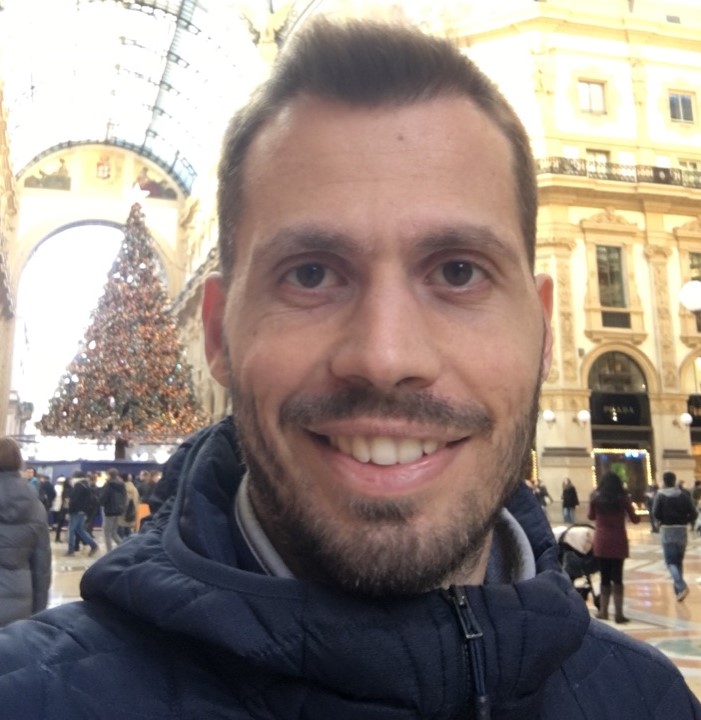
Pseftogas Athanasios 
Università Vita-Salute San Raffaele, Italy
“Investigation of the role of Cyld tumor supressor in marginal zone B-cell lymphoma”
Fellowship type: Incoming
Year awarded: 2018
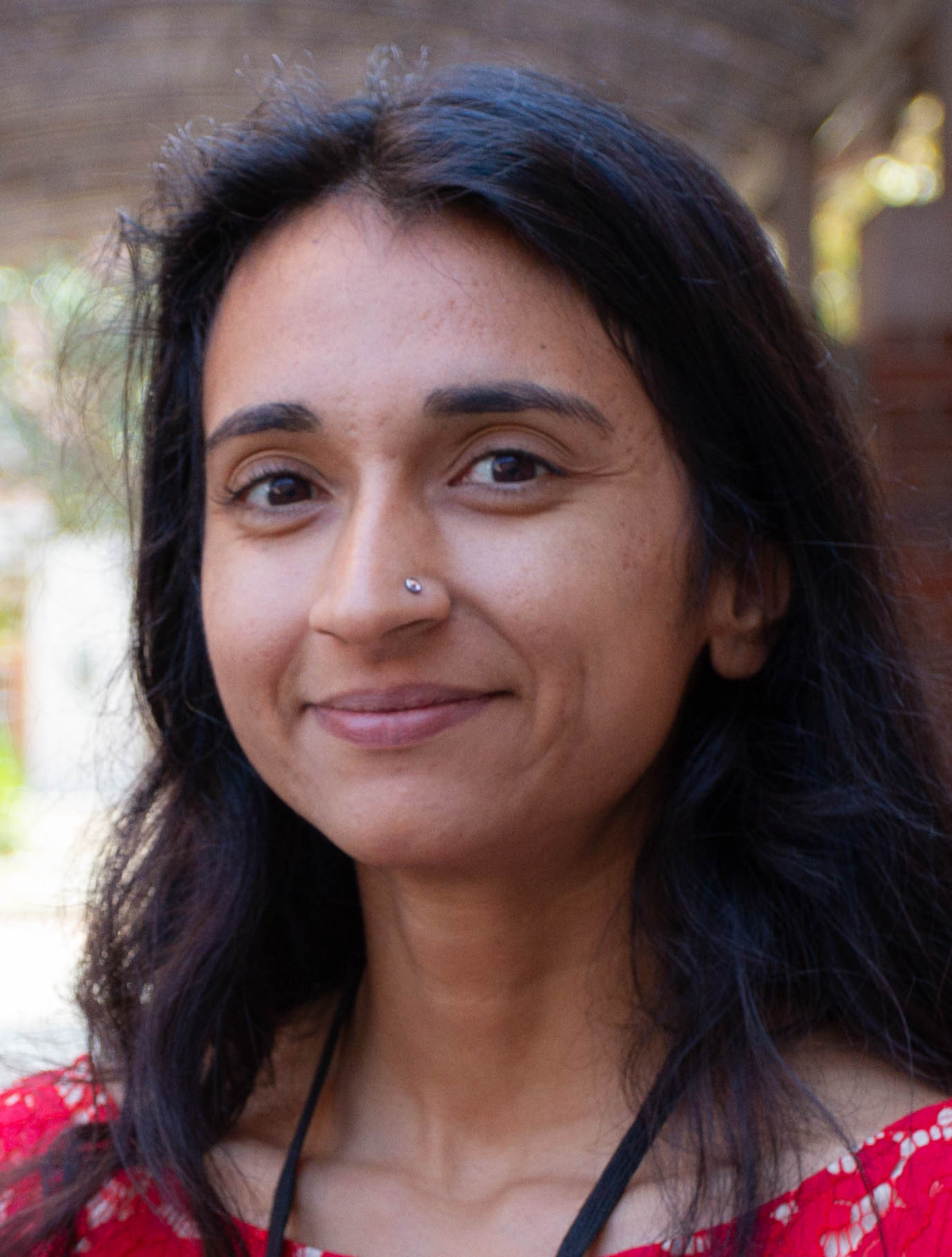
Rangan Priya 
Fondazione Centro San Raffaele, Italy
“Dissecting the contribution of the microbiome to immune-radiotherapy of prostate cancer”
Fellowship type: Incoming
Year awarded: 2019
See achievements
Ribeiro da Cruz Pereira José Rui
Universidade do Minho, Portugal
“Nanomedicine targeting Medulloblastoma in a novel xenotransplant model in wild type mice”
Fellowship type: Outgoing
Year awarded: 2019

Scelfo Andrea 
Institut Curie, France
“Elucidating the role of centromere dysfunction in the onset of genomic instability and cell transformation”
Fellowship type: Outgoing
Year awarded: 2018
See achievements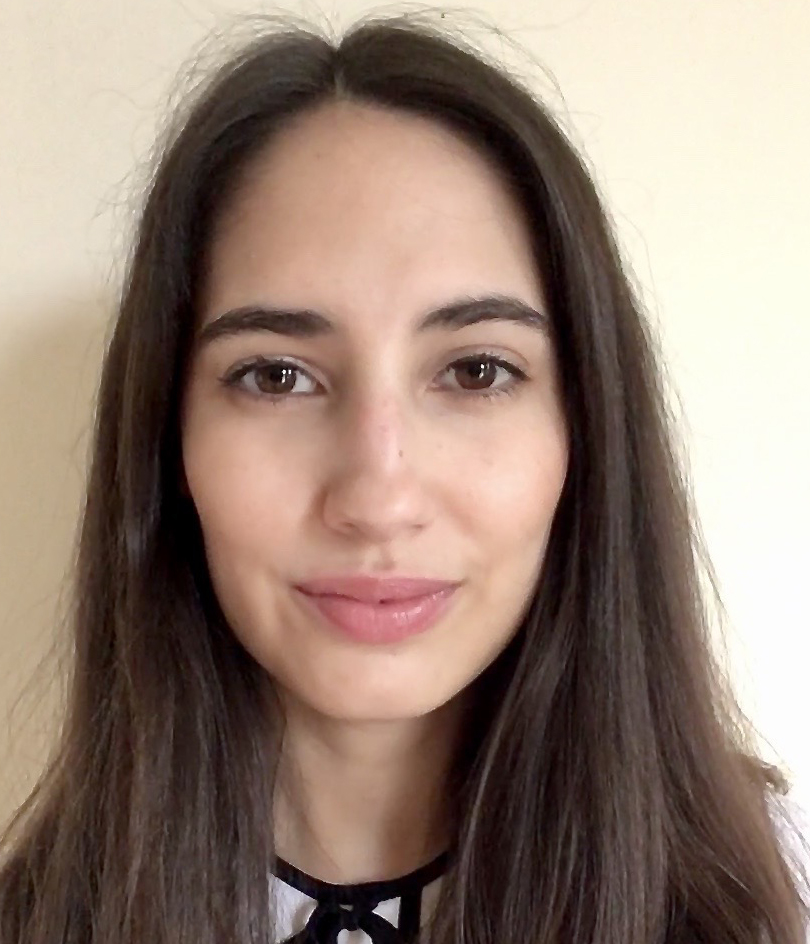
Silva Raquel 
IFOM - Fondazione Istituto FIRC di Oncologia Molecolare, Italy
“Understanding epigenomic regulation rewiring in Diffuse Large B-cell Lymphoma”
Fellowship type: Incoming
Year awarded: 2019
See achievements
Techer Hervé 
Centre National de la Recherche Scientifique, France
“DNA replication stress and inflammation in cancers – focus on SAMHD1 and TREX1”
Fellowship type: Outgoing
Year awarded: 2018
See achievements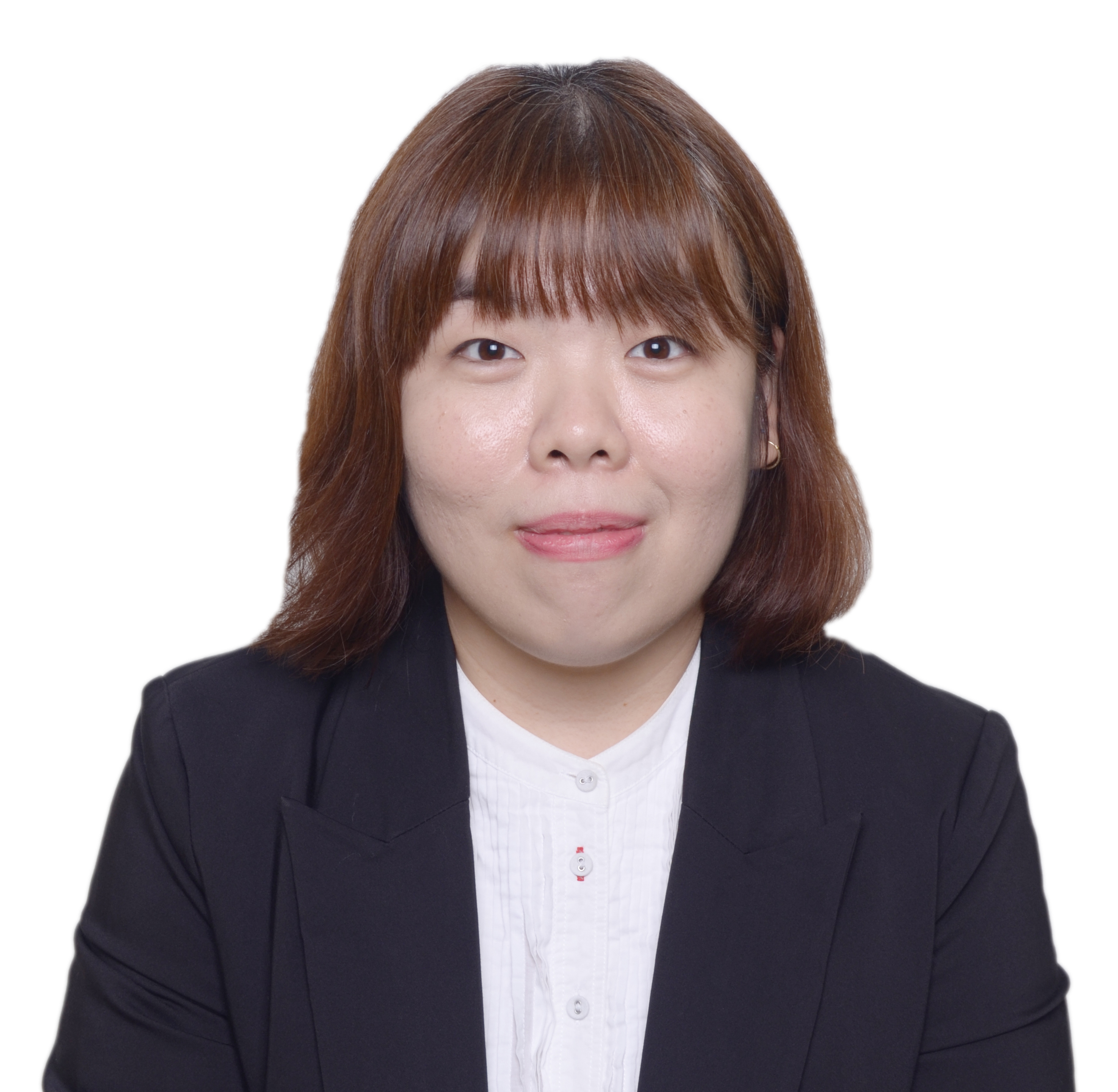
Wong Ee Lin 
Università Ca' Foscari di Venezia, Italy
“Macrocyclic peptides targeting unexplored class IIa HDAC binding sites: towards the development of novel cancer therapy.”
Fellowship type: Incoming
Year awarded: 2019
See achievements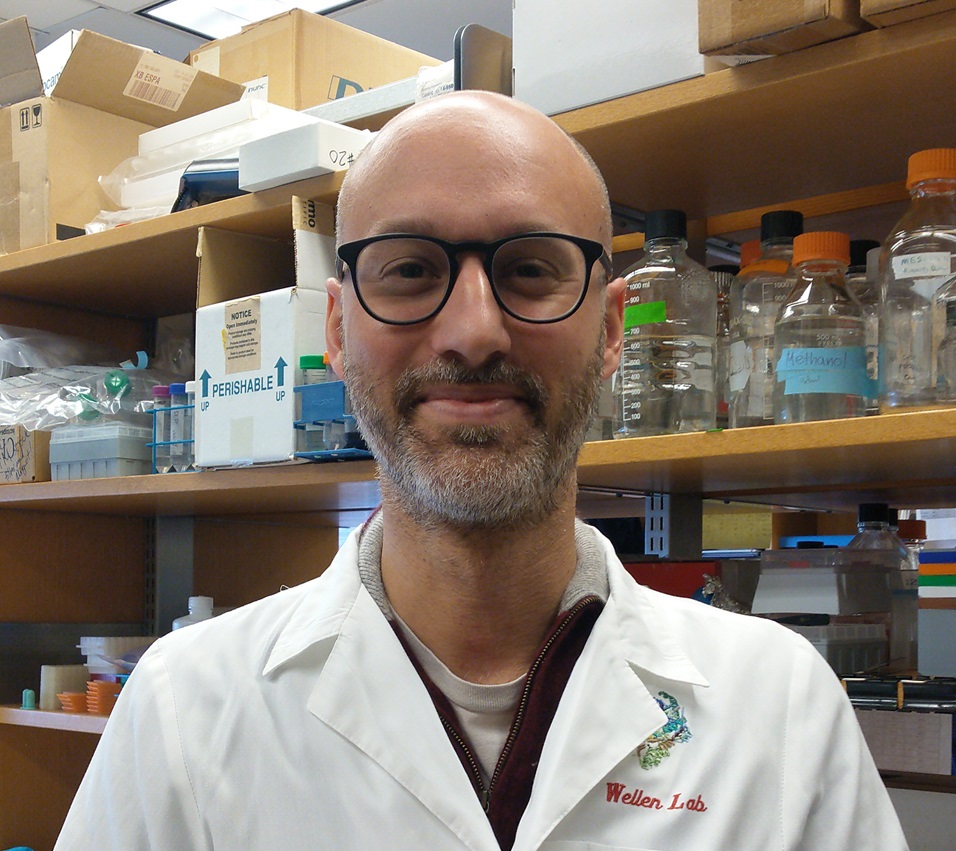
Carrer Alessandro 
Fondazione Ricerca Biomedica Avanzata ONLUS
Venetian Institute of Molecular Medicine (VIMM), Italy
“Metabolically-regulated epigenetic landscape in pancreatic cancer initiation”
Fellowship type: Reintegration
Year awarded: 2018
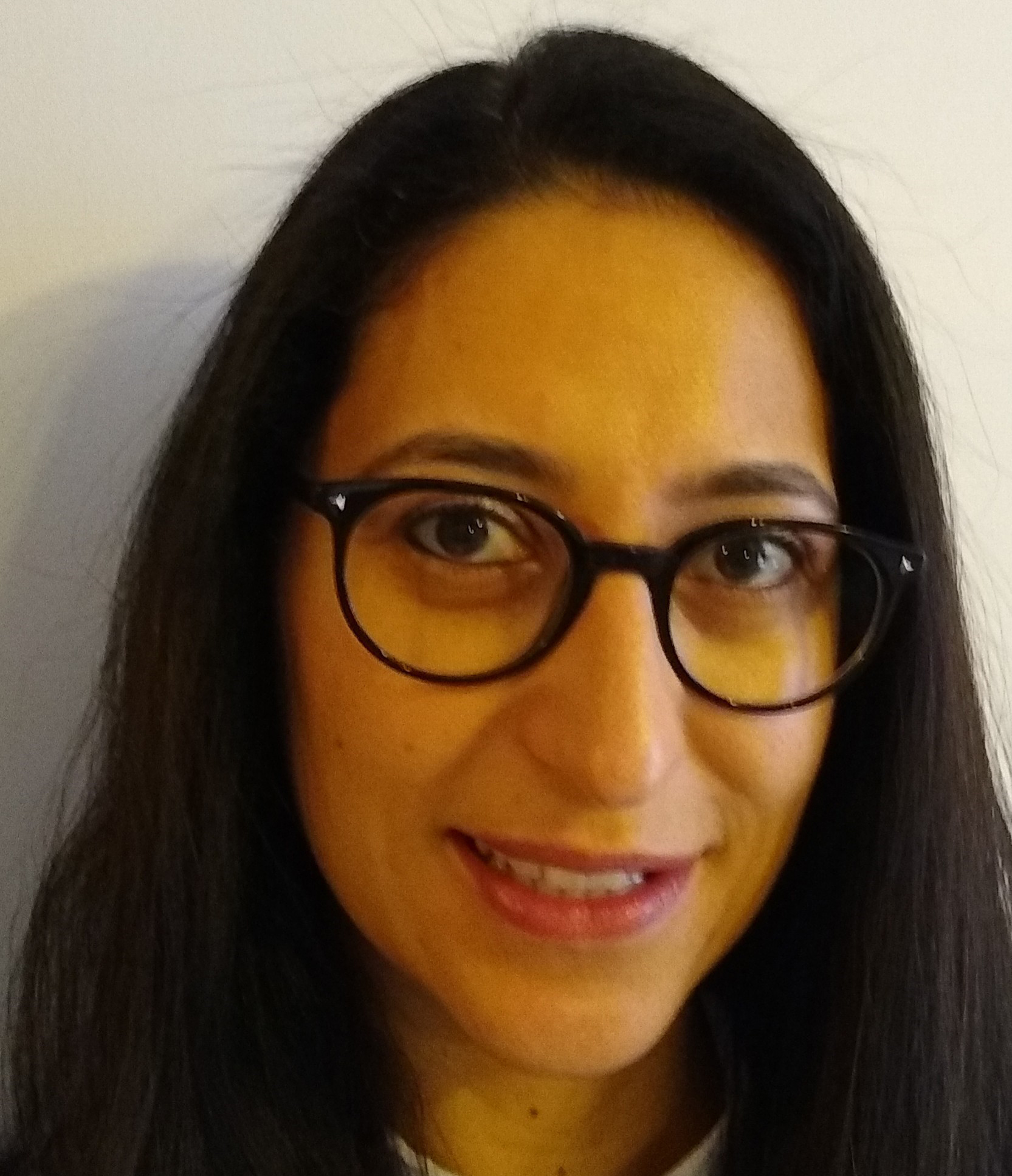
Cerutti Camilla
Istituto Europeo di Oncologia I.R.C.C.S. S.r.l., Italy
“Single-cell epigenetic and molecular signatures in human breast cancer metastasis formation.”
Fellowship type: Reintegration
Year awarded: 2019
See achievements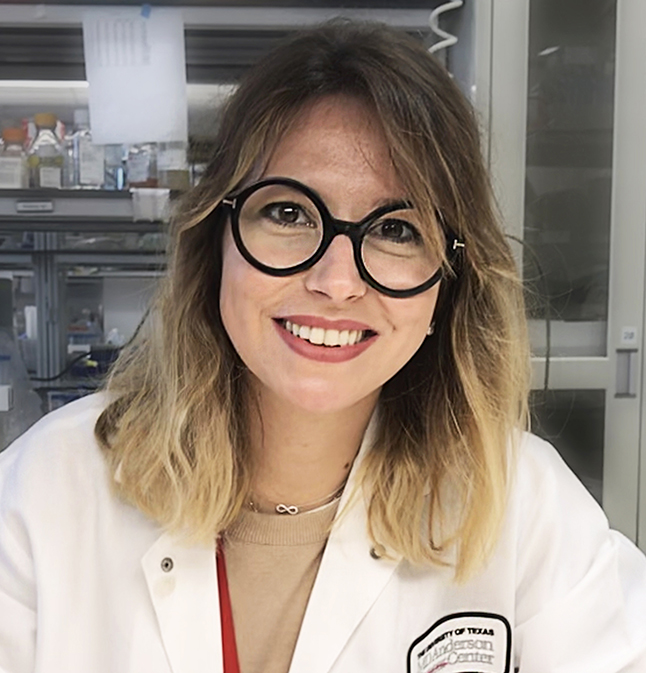
Citron Francesca 
MD Anderson Cancer Center, USA
“Investigate functional exhaustion of cancer stem cells by targeting the epigenome in pancreatic ductal adenocarcinoma”
Fellowship type: Outgoing
Year awarded: 2019
See achievements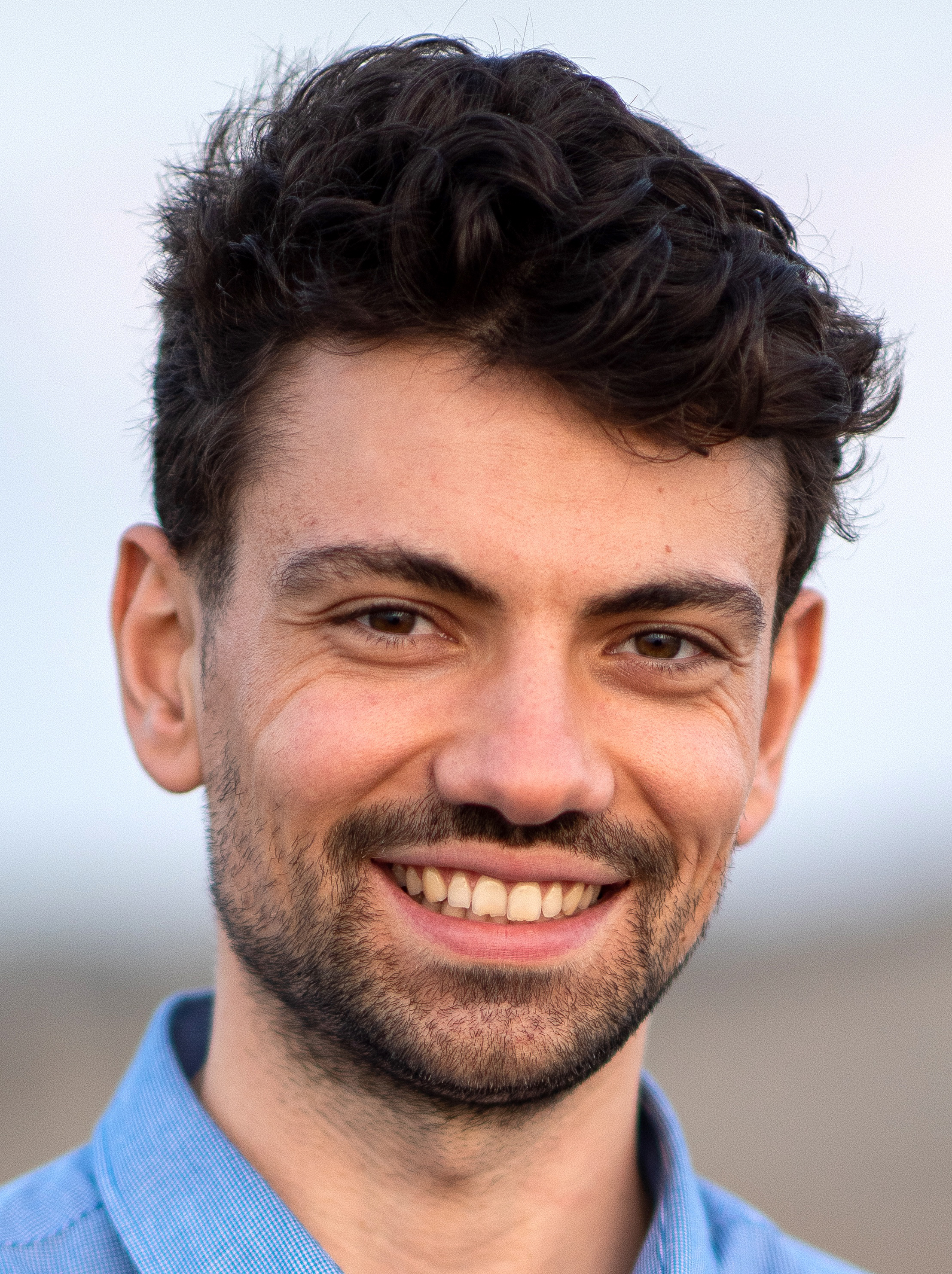
Corleone Giacomo
Istituti Fisioterapici Ospitalieri (IFO), Italy
“An integrated approach towards uncovering the role of transcription factor engagement in Multiple Myeloma”
Fellowship type: Reintegration
Year awarded: 2019
See achievements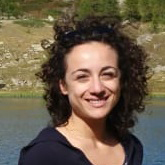
D'Alessandro Giuseppina 
University of Cambridge, England
“Identification and molecular characterization of novel lncRNAs involved in DNA double strand break signaling and repair”
Fellowship type: Outgoing
Year awarded: 2018
See achievements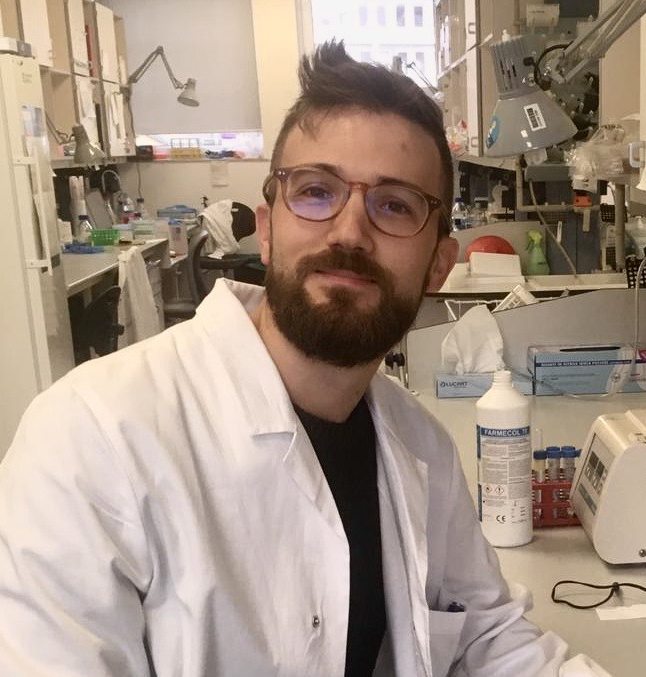
Dona Federico 
Istituto Europeo di Oncologia I.R.C.C.S. S.r.l., Italy
“The role of Afadin in Wnt dependent planar divisions in normal and cancer intestinal crypts.”
Fellowship type: Reintegration
Year awarded: 2019
See achievements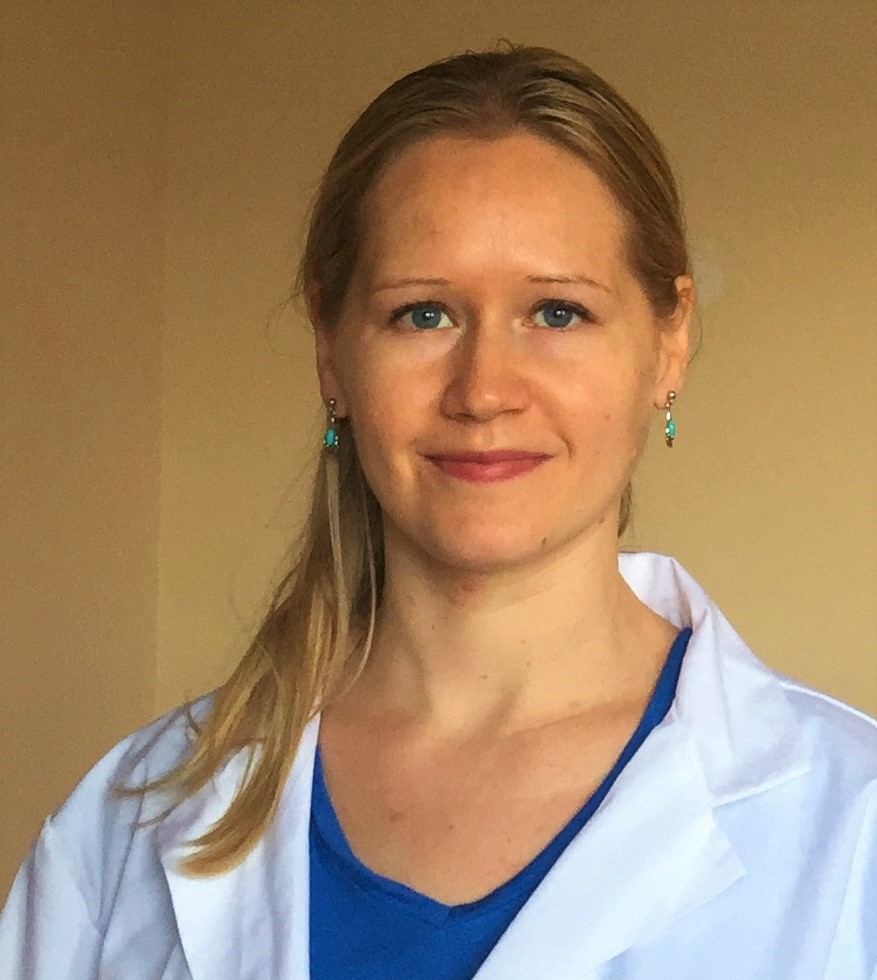
Green Brenda 
IFOM - Fondazione Istituto FIRC di Oncologia Molecolare, Italy
“Endocytic control of jamming transition: an alternative gateway to cell migration and invasion”
Fellowship type: Incoming
Year awarded: 2018
See achievements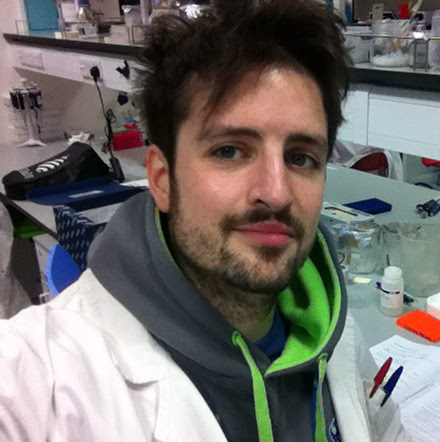
Locatelli Andrea Giacomo 
Fondazione Centro San Raffaele,Italy
“Investigating the unique anti-tumorigenic adaptive strategies evolved in a mammal model of extraordinary longevity.”
Fellowship type: Reintegration
Year awarded: 2019
See achievements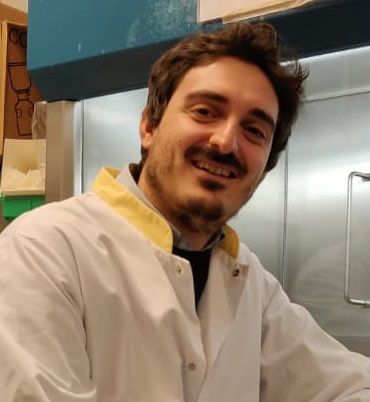
Manzo Stefano Giustino 
Stichting Het Nederlands Kanker lnstituut, Netherlands
“Twisting the boundaries: Role of Topoisomerase1 at the nuclear lamina”
Fellowship type: Outgoing
Year awarded: 2018
See achievements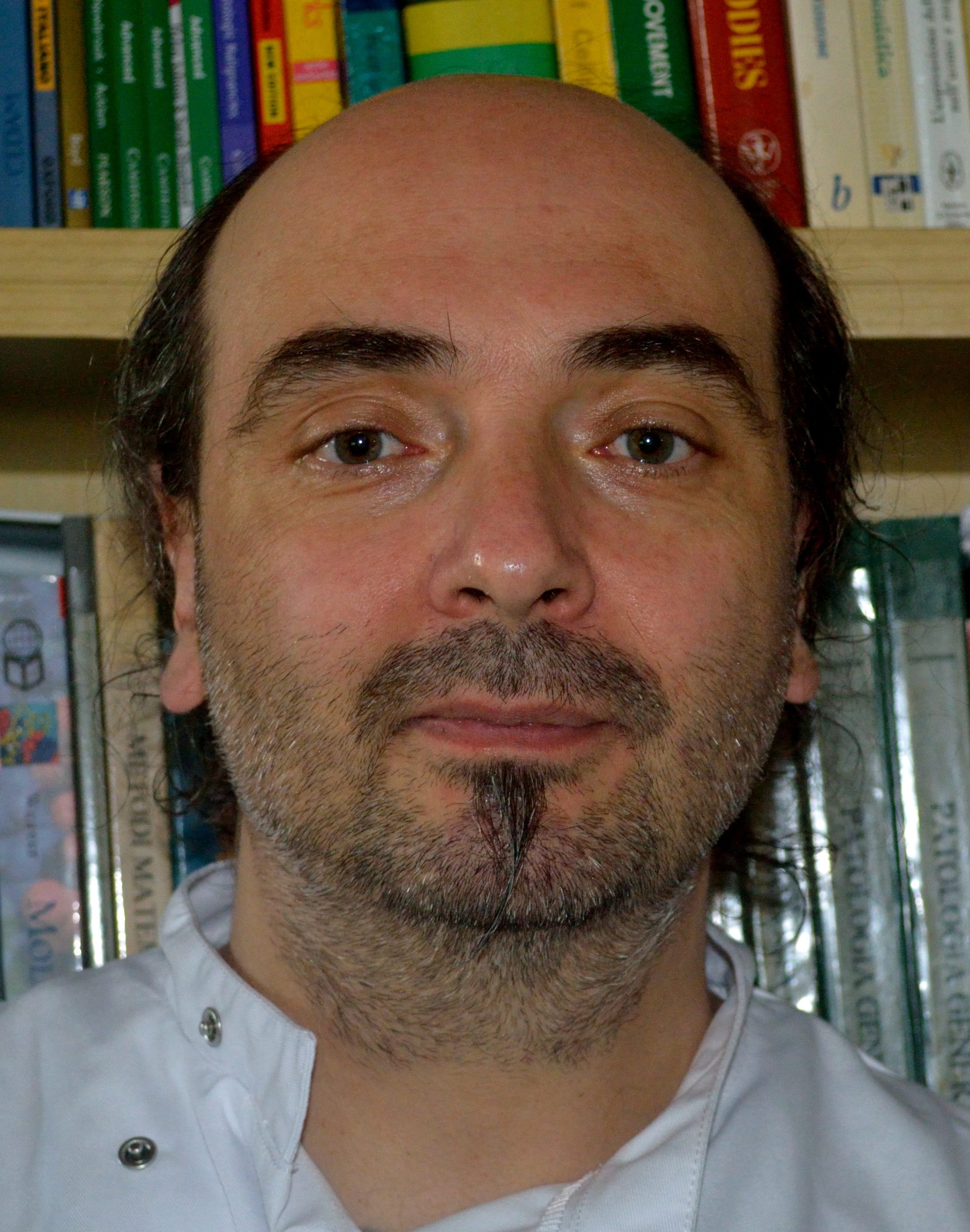
Natoni Alessandro 
Università degli Studi di Roma "La Sapienza", Italy
“The role of sialofucosylated structures in Myeloma progression and immune evasion”
Fellowship type: Reintegration
Year awarded: 2019
See achievements
Pasqualetti Francesco 
The University of Oxford, England
“Implications of circulating exosomes in patients with glioblastoma”
Fellowship type: Outgoing
Year awarded: 2019

Quatrini Linda 
Ospedale Pediatrico Bambino Gesù, Italy
“Regulation of Natural Killer cell anti-tumor function by glucocorticoids”
Fellowship type: Reintegration
Year awarded: 2018
See achievementsHelper Innate Lymphoid Cells in Human Tumors: A Double-Edged Sword?
ILC3s: Rhythmic Keepers of Gut Integrity at Mealtime
Characterisation of innate lymphoid cell subsets infiltrating colorectal carcinoma.
NK cells and ILCs in tumor immunotherapy.
New insights into the cell- and tissue-specificity of glucocorticoid actions
Inhibitory Receptors and Checkpoints in Human NK Cells, Implications for the Immunotherapy of Cancer
Interaction Between MDSC and NK Cells in Solid and Hematological Malignancies: Impact on HSCT.
Inhibitory checkpoints in human natural killer cells: IUPHAR Review 28.
Human NK cells, their receptors and function.
Regulation of the Immune System Development by Glucocorticoids and Sex Hormones.
PD-1/PD-L1 in Cancer: Pathophysiological, Diagnostic and Therapeutic Aspects.
Glucocorticoids inhibit human hematopoietic stem cell differentiation toward a common ILC precursor.
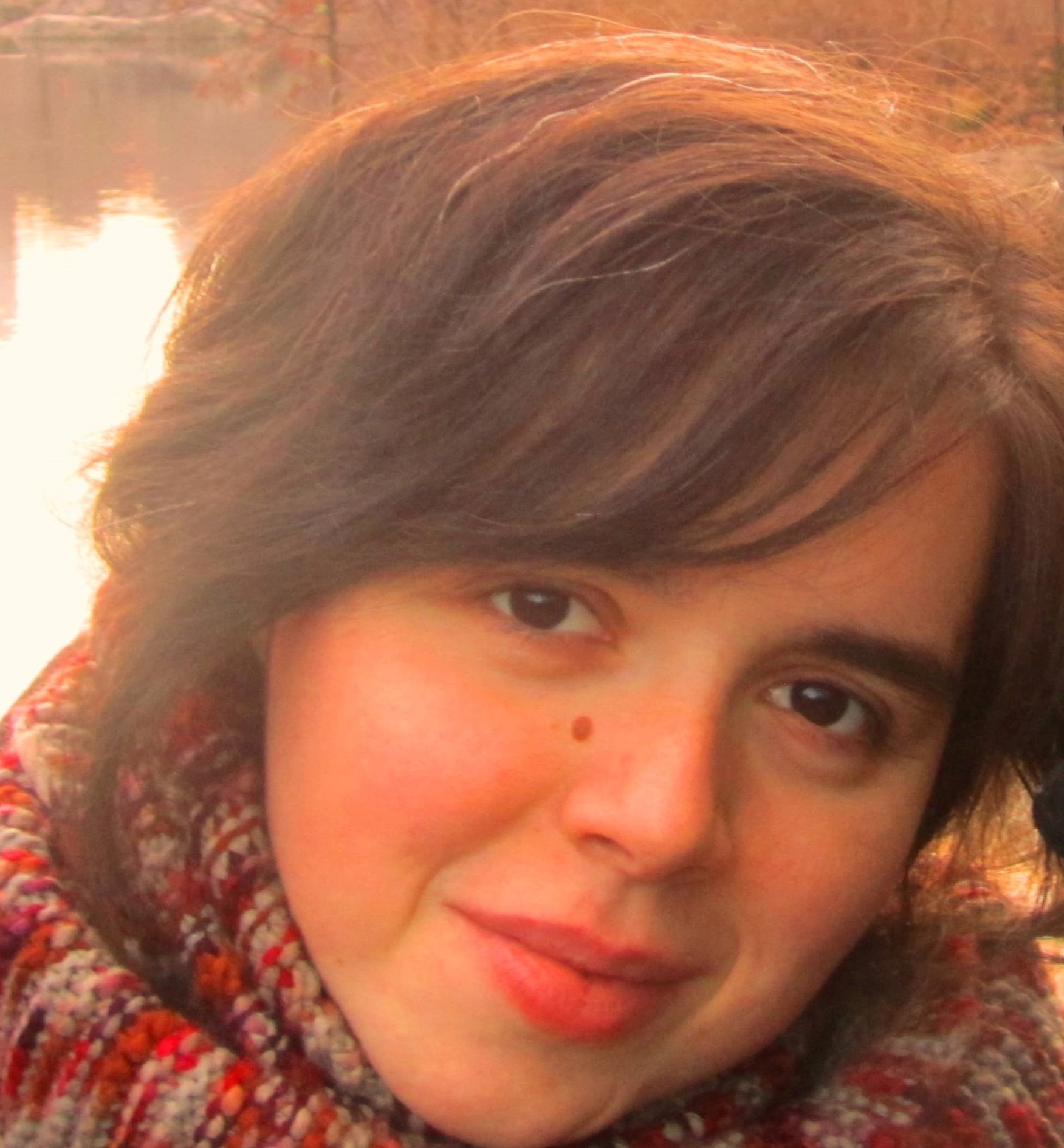
Reis Joana 
Università degli Studi di Pavia, Italy
“Drug discovery against carcinogenesis: Design of selective NADPH oxidase inhibitors involved in ROS signalling”
Fellowship type: Incoming
Year awarded: 2018
See achievements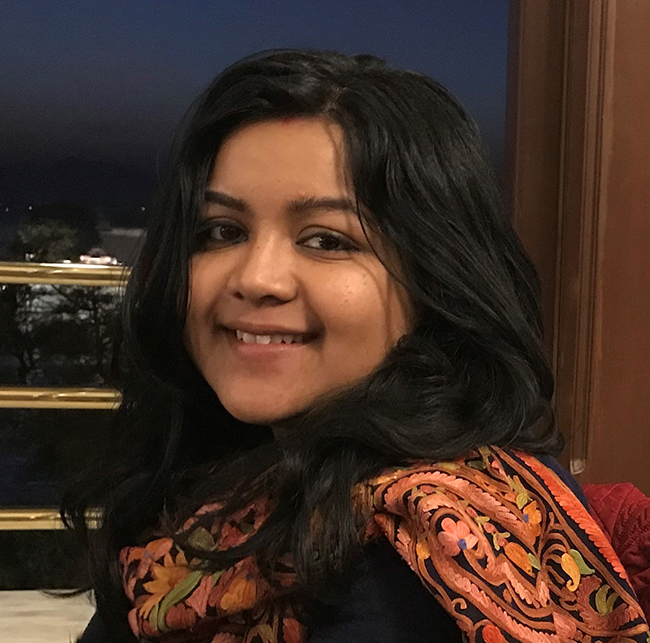
Sarkar Ankita 
Fondazione Istituto Italiano di Tecnologia, Italy
“Dynamic docking simulations to optimize novel and potent anticancer inhibitors of human Topoisomerase II”
Fellowship type: Incoming
Year awarded: 2019
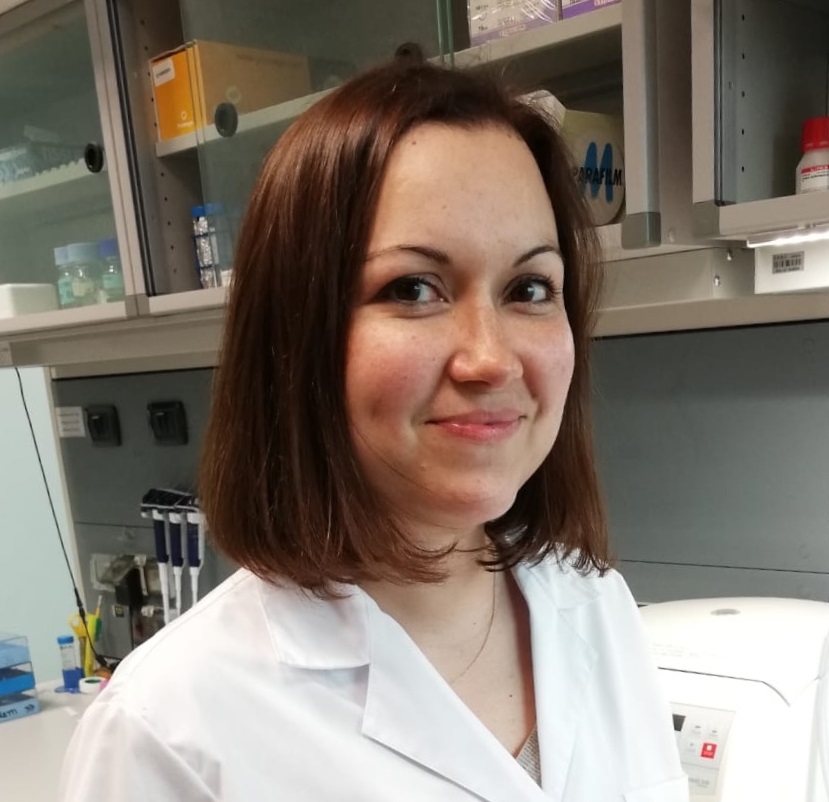
Serra Maria 
Istituto di Candiolo - Fondazione del Piemonte per l'Oncologia
(FPO) - I.R.C.C.S., Italy
“The role of metabolic reprogramming in driving colorectal carcinoma by regulating stemness and tumorigenesis”
Fellowship type: Incoming
Year awarded: 2018
See achievements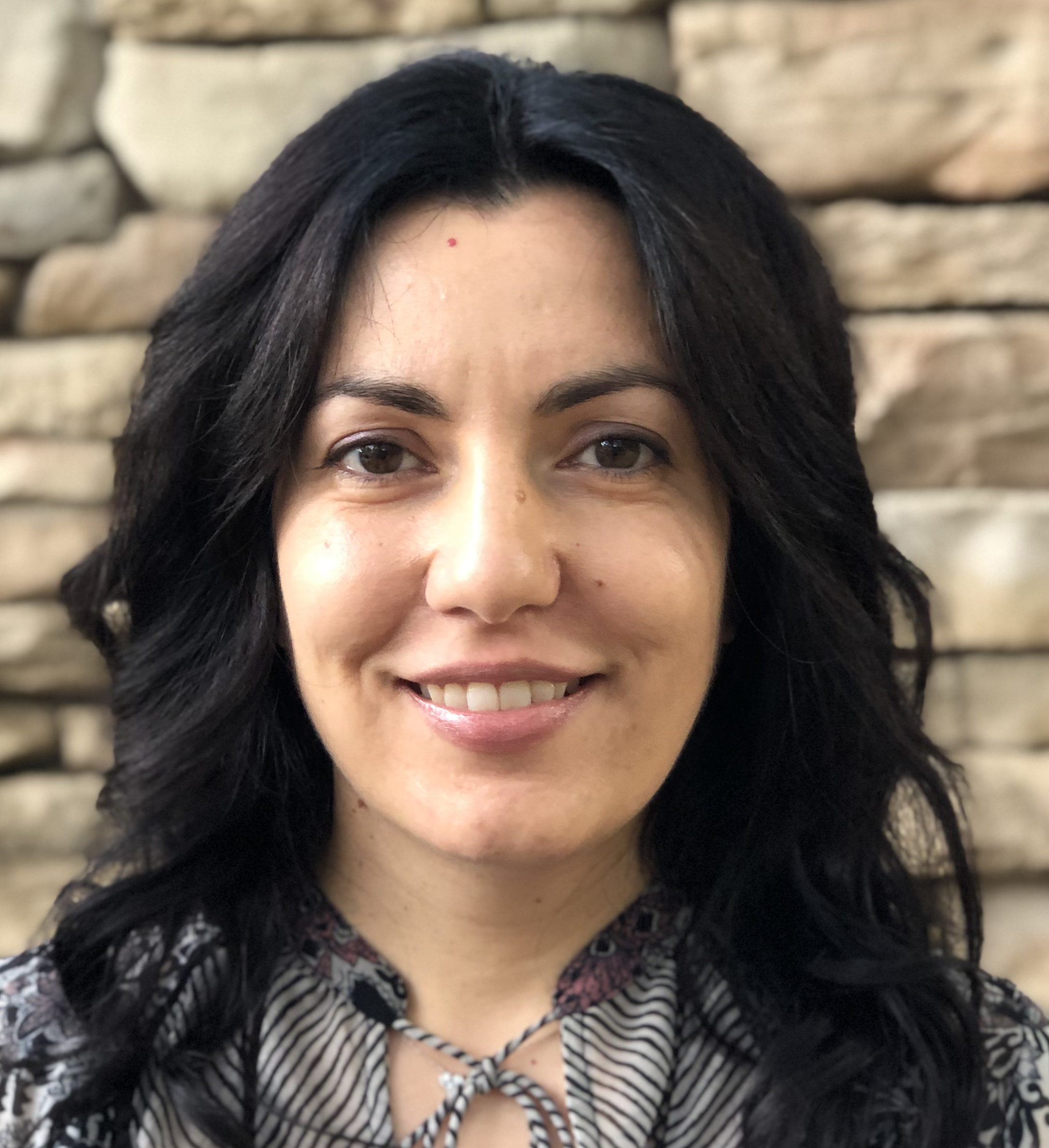
Tasselli Luisa 
Università degli Studi di Perugia, Italy
“Identification and functional characterization of mutations in the coding and non-coding genome of Hodgkin lymphoma”
Fellowship type: Reintegration
Year awarded: 2019
See achievements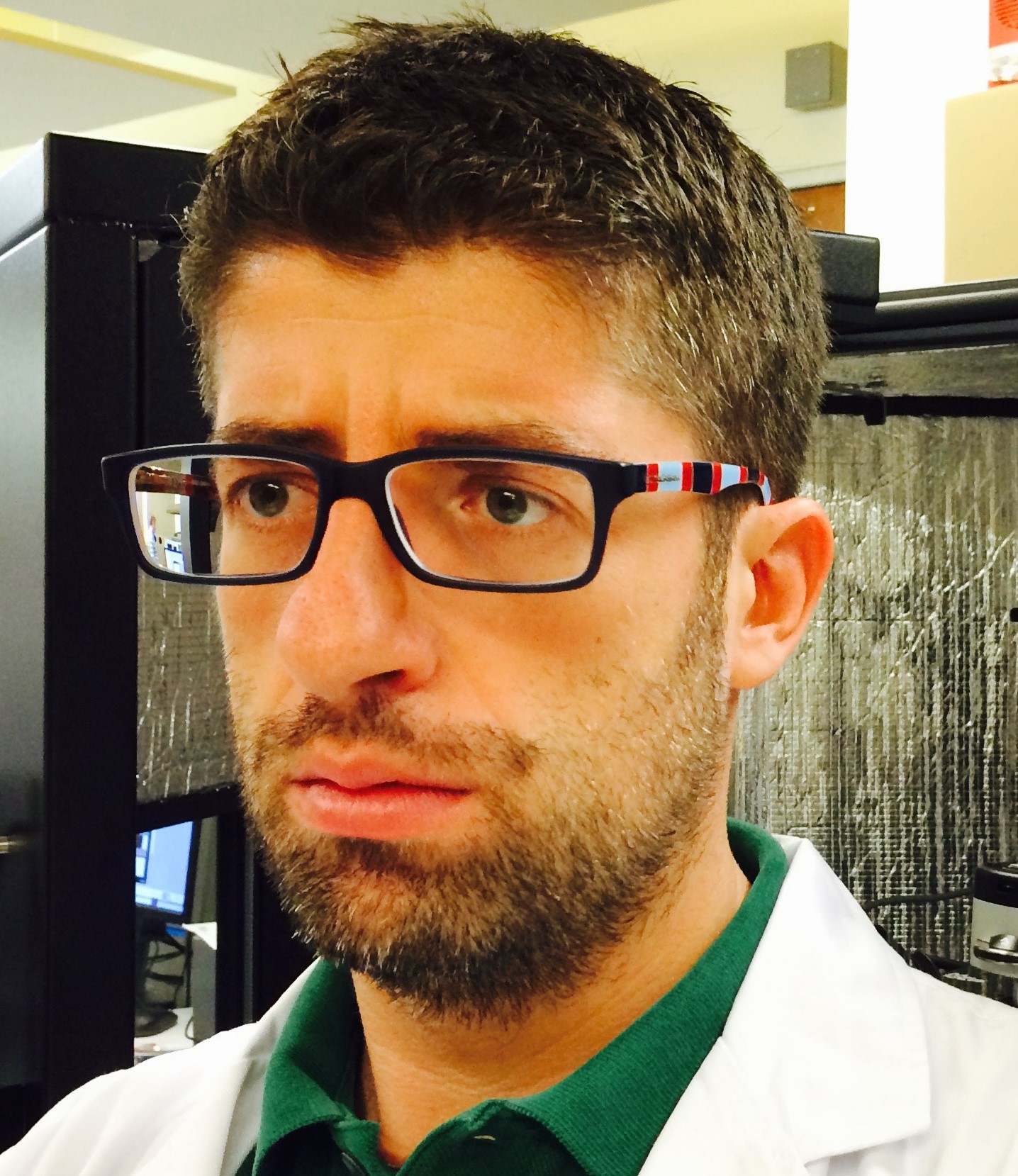
Tirinato Luca 
Universitá degli Studi "Magna Græcia" di Catanzaro, Italy
“Nanotechnological-based approach for unraveling Lipid Droplet role in Colon Cancer Stem Cells”
Fellowship type: Reintegration
Year awarded: 2018
See achievementsRaman Spectroscopic Stratification of Multiple Myeloma Patients Based on Exosome Profiling.
ROS and Lipid Droplet accumulation induced by high glucose exposure in healthy colon and Colorectal Cancer Stem Cells
A Novel Analysis Method for Evaluating the Interplay of Oxygen and Ionizing Radiation at the Gene Level.
Lipid droplets and ferritin heavy chain: a devilish liaison in human cancer cell radioresistance.
Human lung-cancer-cell radioresistance investigated through 2D network topology.
Human Cancer Cell Radiation Response Investigated through Topological Analysis of 2D Cell Networks.
Correlative Raman-Electron-Light (CREL) Microscopy Analysis of Lipid Droplets in Melanoma Cancer Stem Cells.
Radio-resistance of hypoxic tumors: exploring the effects of oxygen and x-ray radiation on non-small lung cancer cell lines.
Human Cancer Cell Radiation Response Investigated through Topological Analysis of 2D Cell Networks
Transferable skills
As highlighted in the European Charter of Researchers training in non-research oriented skills is essential to develop abilities that make researchers more valuable in the job market, expanding their career opportunities also in non-academic sectors.
Transferable skills include science communication, grant writing, Intellectual Property Rights, entrepreneurship, leadership, research integrity, and many more.
Within iCARE-2 program a dedicated budget (€ 1800/year) is transferred to the Hosting Institution and must be used for meetings and/or training events.
Publicly available training events on transferable skills as well as relevant tools will be advertised in this page: check it regularly!
Events
EMBO: Lab leadership, management and soft skills courses
Date: several dates available Host/Organizer: EMBO Location: online or in-person
Several online and in-person courses are organized by EMBO Solution. Topics covered range from Lab leadership, to scientific writing, from project management to negotiation.
Tools
The Marie Curie Alumni Association
If funded with an iCARE-2 fellowship, you get the right to register in the Marie Curie Alumni Association, a global network of researchers.
Ten simple rules for collaboratively writing a multi-authored paper
This publication (available as open access) suggests ten rules to collaboratively write a multi-authored paper.
Think. Check. Submit.
The website Think. Check. Submit. helps researchers identify trusted journals for their research.
How to design a winning fellowship proposal
This publication (available online free of charge) give some advice on how to plan a fellowship application.
Why you should move country
Researchers who are mobile get more citations and build broader teams of collaborators than those who aren’t, study finds.
Making the Right Moves: A Practical Guide to Scientific Management for Postdocs and New Faculty, Second Edition
This book (available for free as a downloadable PDF document) is a collection of practical advice and experiences from seasoned biomedical investigators and includes chapters on laboratory leadership, getting funded, project management, and teaching and course design.
Film and television tell children who can be scientists
Short article in the Career News section of Nature (23 November 2018)
Thinking about moving abroad for work? Here’s what the latest research says about the pros and cons of relocating. From Science Careers
Considering going abroad for work? Recent research can help you weigh the pros and cons
Meet the supervisors who helped to shape four scientists’ careers
Knowing when to hand-hold and when to step back is crucial for helping early-career researchers.
Seven steps to boost your research career in 2019
If you’re looking to move labs, countries or sectors this year, or seeking general career inspiration, here’s some advice from five researchers who featured in Nature Careers in 2018.
Conference attendance boosts authorship opportunities
Scientists who travel to meetings are more likely to co-author papers than are those who stay at home.
Six project-management tips for your PhD
Use strategies from the private sector to better manage your graduate project. …valide also for your Post-Doc!
Conference presentations: Lead the poster parade
An eye-catching presentation can attract potential collaborators — and even a cash prize.
Working Scientist podcast: How to plan a successful grant application
Julie Gould investigates the importance of advance planning when you're preparing a funding application.
My first postdoc position was a disaster. This is what I learned
Some tips of moving on from a bad postdoc position.
To ace your Ph.D. program interviews, prepare to answer—and ask—these key questions
You’ve made it to the last step of the Ph.D. application process: the interview.
Essential elements for high-impact scientific writing
Successfully communicating the impact of your research is crucial for making your work more accessible, and for career progression. Here are the key elements to make your data stand out.
How to use Twitter to further your research career
The social-media platform is often a tool for procrastination. But what else can it be?.
Why I plan my career in pencil—not pen
Career plans can change: write your goals in pencil, and be preparared to change them.
The Node
This page lists events that are of interest to the global community of (developmental) biologists: conferences, meetings, training courses, workshops.
Peer Review: the nuts and bolts
This is a guide to peer review for early career researchers written by members of the VoYS network. Using a collection of concerns raised by their peers, the authors set off to interview scientists, journal editors, grant bodies’ representatives, patient group workers and journalists in the UK and around the world to find out how peer review works, the challenges for peer review and how to get involved.
To find the right career fit, I needed to do more than move from job to job
"I spent a few years in each role only to find that it wasn’t quite the right fit." When this scientist couldn’t find her one ideal job, she tried something different: a combination of two.
Three research-based lessons to improve your mentoring
How to become a better mentor in this "Letters to Young Scientists" column from Science Careers.
Six easy ways to manage your time better
The amount and quality of what you achieve are crucially dependent on how effectively you manage your time. Andrew C. Johnson and John Sumpter propose some simple steps that scientists can take to improve their time management.
Five ways media training helped me to boost the impact of my research
How I learnt to maximize the value of TV, radio and publication interviews to reach and help the people I most want to support.
The importance of being introspective in the lab
Question your own point of view first to avoid career-damaging conflict, says Benjamin Tsang.
The professional advisers who can help you to move from academia to industry
University careers advisory services can connect PhD students with employers and guide them to the right role.
Essential elements for high-impact scientific writing
To write better, remember that your science is exciting, says Eric J. Buenz.
How to write effectively for international journals
Use modern tools to manage research literature, analyse published articles and find language teachers to improve manuscripts for publication.
Postdoctoral mentorship key to career success
Mentors can have a lasting influence, but it’s important to carve your own niche.
Tenure denial, and how early-career researchers can survive it
Scientists with first-hand experience of rejection offer their advice.
Five reasons to do an internship during your PhD programme
Rekindle your love for problem-solving by taking your lab skills to a completely different environment, says Jessica Sagers.
Top tips for giving an engaging talk
Three researchers share lessons they’ve learnt from presenting at TED conferences.
How agile project management can work for your research
Laura Pirro outlines an approach that could increase output and improve motivation.
Networking for introverted scientists
A structured, scientific approach can help introverted scientists to become networking superstars, says academic educator Ruth Gotian. She outlines how to prepare effectively, the three things you should aim to achieve at a networking event and how to find networking spaces that work best for you.
The Mentor Protégé Partnership: How to Leverage This Critical Alliance
How do you sustain and grow a mentoring relationship for the long term? Find out in this free webinar organized by the Lindau Nobel Laureate Meetings, presented by Alaina G. Levine.
Cell mentor
From CellPress, Cell Mentor empowers early-career researchers with career insights, publishing advice, and techniques on experimental processes and procedures.
Toolkit: How to find scientific funding
An early career researcher’s guide to the working world of science, from Nature Careers.Your science has to be good to attract funding. Competition is fierce, but there are techniques you can use to boost your chances of securing a grant.
Toolkit: How to write a great paper
An early career researcher’s guide to the working world of science, from Nature Careers. Excellent science is an essential ingredient of any great research paper, but concise writing and a clear structure are also crucial.
Toolkit: How to write a great academic CV
An early career researcher’s guide to the working world of science, from Nature Careers. Academic CVs differ from those intended for industry roles. Here are some broad rules to follow.
How academics should use Twitter
Scientists are pushing back against the kind of university social-media guidelines that stifle their voices and bury the “power of the individual”, says geneticist Piero Carninci. Rather than opt out altogether, try this neat guide to help scientists — as well as their higher-ups — get over the Twitter jitters.
Three tips to avoid becoming a ‘conference zombie’
It’s tempting to try to attend sessions morning, noon and night, network like crazy during every ‘spare’ minute and drink vats of coffee to stay alert. Paris H. Grey has more realistic suggestions to get maximum value from any conference.
Ways to give an effective seminar about your research project
In this Nature Career article, Ananya Sen recommends to grab your audience’s attention by using slides as a roadmap and focusing on your role as a presenter.
Research integrity is much more than misconduct
Nature editorial: All researchers should strive to improve the quality, relevance and reliability of their work.
Is the Earth flat? A six-step guide to better communicate your scientific results to the public
Useful article of the Marie Curie Alumni Association Blog.
ACS Careers Network
The ACS Career Navigator™ guides you in exploring the career roles you aspire to and provides the resources necessary to function effectively in each role.
Help funders help you: Five tips for writing effective funding applications
Letter to young scientists.
How to get your abstract selected for a short talk at a conference
In this short video prepared by EMBL, find out how you can increase your chances of getting selected for a short talk at your next conference, by answering 4 basic questions.
The science institutions hiring integrity inspectors to vet their papers
This News Feature article from Nature describes recent procedures put in place by some research institution to foster research integrity.
Recommended checklist for researchers
Prepared by the UK Integrity Office, the Recommended checklist for Researchers is a one-page, non-technical chelist of key-points of good practice in research , applicable to all research areas.
Think. Check. Attend
Think. Check. Attend. is an initiative that aims to guide and assist researchers and scholars to judge the legitimacy and academic credentials of conferences in order to help them decide whether to or not attend the same.
Experi-mentoring: Where to turn when your PI can’t help
In this Science Career story, Adam Ruben describes few possible alternative sources of mentorship, when your PI is unavailable to mentor you.
Tips for fruitful networking over the holidays
In this Science Career story, Alaina G. Levine give some advice on how to The holiday season is also the perfect time for networking from afar. It gives you a reason to reach out and say hello, to follow up on a conversation you had in the last year, or to reconnect with someone you haven’t interacted with in a while.
Predatory journals: no definition, no defence
Leading scholars and publishers from ten countries have agreed a definition of predatory publishing that can protect scholarship. It took 12 hours of discussion, 18 questions and 3 rounds to reach.
No country for bad science writing
Pulitzer-prizewinning novelist Cormac McCarthy has edited many works by faculty members and postdocs at the Santa Fe Institute in New Mexico, including theoretical biologist and ecologist Van Savage. In bite-size pieces relevant to academics and humble email-writers alike, Savage summarizes the advice he got from McCarthy over a winter of lively weekly lunches. McCarthy’s most important tip: keep it simple while telling a coherent, compelling story.
How to get your work on a journal cover
First, do some great science, obviously. Next, heed the advice of scientific photographer Felice Frankel and learn to take an exceptional photo using only a mobile phone or a flatbed scanner. Kelly Krause, creative director of Nature and the Nature journals, walks you through some of the stunning images and top tips from Frankel’s latest book.
Six project-management tips for your PhD
A PhD project can feel like it demands more time than is humanly possible. PhD candidate Angel Santiago-Lopez came up with a list of project-management skills that could help you to tame the beast.
What not to do in graduate school
Chemist Buddini Karawdeniya offers simple but sound advice for graduate students (and it’s quite handy for the rest of us, too). Don’t compare yourself with others, blindly trust your data or get stuck after one failure. And, when you struggle with problems, don’t suffer alone.
Articles in ‘predatory' journals receive few or no citations
Science article on the citation level of articles published on "predatory" journals.
Check for publication integrity before misconduct
This Nature comment presents a tool that focuses on papers — not researcher behaviour — and that can help readers, editors and institutions assess which publications to trust.
Twelve tips for engaging with biologists, as told by a physicist
In this Nature Career column article, Sarah Bohndiek says that the fastest way to become fluent in the language of a new scientific discipline is to embed yourself inside it and use it regularly.
Top tips for getting your science out there
In this Nature Career column article, Craig Cormick explains how scientists can get their arguments across to members of the public.
What to do when your grant is rejected
Failed funding applications are inevitable, but perseverance can pay dividends.
A scientist’s guide to email etiquette
This Letters to Young Scientists articles offers tips on how to get the most out of email communication.
Ten Simple Rules to becoming a principal investigator
From bouncing back from failure to knowing when to quit, immunologist John Tregoning and computational biologist Jason McDermott outline ten tips for overcoming “the biggest choke point in an academic career … moving from doing someone else’s research to getting other people to do yours”. With cartoons!
Safety First: A Recent Case of a Dichloromethane Injection Injury
When a tiny lab accident almost leads to amputation. A student in Sébastien Vidal’s lab accidentally stabbed himself with a syringe containing a residual amount of dichloromethane, one of the most common organic solvents used in a synthetic chemistry laboratory. The student almost lost his finger. Vidal shares a first-hand account of the accident (with somewhat gruesome photos of the injured finger) to spread the word of the danger of this compound and urge the scientific community to develop safer methods.
Science 2020 Career Handbook
Science Careers has teamed up with some great organizations to bring you information about the latest career opportunities in many different fields. The profiles included in this booklet give you a sense of the types of organizations that are accepting resumes and the kinds of positions they offer. We’ve also included some articles with some general tips and advice on job searching.
Free lists of grants and fellowships around the world available online
Three searchable databases provide information on global opportunities for graduate students, postdocs and junior faculty members.
Words matter: jargon alienates readers
Overly technical language in science articles can alienate readers, potentially shutting them out of scientific discussion and knowledge. A study of 650 members of the general public found that jargon-packed paragraphs made topics harder to understand, and discouraged them from finding out more, compared to text that used more familiar words. Adding links to define technical terms didn’t help — better to avoid jargon at all, say the researchers.
Taking Pleasure in Networking
Want to improve your networking skills? This MCAABlog post provides some valuable tips on networking for scientists and researchers
Research integrity: 9 ways to walk the walk
Over the past two decades, there have been plenty of declarations that outline the components of trustworthy research and the principles of research integrity. There have also been shocking cases of fraud, alarming rates of questionable research practices and foot-dragging on retractions and corrections, write political scientist Niels Mejlgaard and 20 colleagues. Their long-term study on improving research integrity reveals nine ways institutions are trying to make things better, from preventing hypercompetition to offering incentives for data sharing.
How to make great CVs for industry and academia
This webcast, the first of a two-part series, will aim to help PhD students and other early career researchers improve their CVs for their future careers. It will touch on both academic and industry research CVs, and the differences between them.
A scientific journal for postdoctoral researchers
Starting a journal may be an opportunity to acquire some essential skills in reviewing and editing, a former post-doc reveals in this Nature Career column.
How to write a superb literature review
Literature reviews are important resources for scientists. You can find useful tips on how to write a good one in this Nature article.
How to build a network of mentors
Suggestions on how to seek multiple mentors (and not be discouraged if they say "no").
A career investigating research misconduct
How a chance assignment during a seminar class led to a job as a research integrity officer
Retracting my paper was painful. But it helped me grow as a scientist
A scientist reflects on the impact that retracting a paper has had on his career, and the lessons to be learned.
How to wrap up research projects gracefully
Four researchers offer tips on ending, redefining and handing over projects
Fellows' scientific achievements
AIRC wants to give visibility to the scientific production of iCARE-2 fellows.
This page will host a link to all the scientific achievements produced during the fellowship’s period, such as papers, patents and conference proceedings.
Keeping the Centromere under Control: A Promising Role for DNA Methylation.
Scelfo A (iCARE-2 2018), Fachinetti D.
Cells. 2019 Aug 16;8(8). pii: E912. doi: 10.3390/cells8080912. Review. Read article here
Targeting Glutathione Metabolism: Partner in Crime in Anticancer Therapy.
Desideri E (iCARE-2 2018), Ciccarone F, Ciriolo MR.
Nutrients . 2019 Aug 16;11(8). pii: E1926. doi: 10.3390/nu11081926. Review. Read article here
Histone H2AK119 Mono-Ubiquitination Is Essential for Polycomb-Mediated Transcriptional Repression.
Tamburri S, Lavarone E, Fernández-Pérez D, Conway E (iCARE-2 2018), Zanotti M, Manganaro D, Pasini D.
Mol Cell. 2019 Dec 17. pii: S1097-2765(19)30890-1. doi: 10.1016/j.molcel.2019.11.021. Read article here
A closer look into NADPH oxidase inhibitors: Validation and insight into their mechanism of action
J. Reis (iCARE-2 2018), M. Massari, S. Marchese, M. Ceccon, F.S. Aalbers, F. Corana,S. Valente, A. Mai, F. Magnani, A. Mattevi.
Redox Biology (2020), doi: 10.1016/j.redox.2020.101466. Read article here
Helper Innate Lymphoid Cells in Human Tumors: A Double-Edged Sword?
Tumino N, Vacca P, Quatrini L (iCARE-2 2018), Munari E, Moretta F, Pelosi A, Mariotti FR, Moretta L.
Front Immunol. 2020 Jan 29;10:3140, doi: 10.3389/fimmu.2019.03140. eCollection 2019. Review Read article here
Characterisation of innate lymphoid cell subsets infiltrating colorectal carcinoma.
Carrega P, Orecchia P, Quatrini L (iCARE-2 2018), Tumino N, Venè R, Benelli R, Poggi A, Scabini S, Mingari MC, Moretta L, Vacca P.
Gut. 2020 Mar 5. pii: gutjnl-2020-320908. doi: 10.1136/gutjnl-2020-320908. Read article here
Role of uL3 in the Crosstalk between Nucleolar Stress and Autophagy in Colon Cancer Cells
Pecoraro A, Carotenuto P (iCARE-2 2019), Franco B, De Cegli R, Russo G, Russo A.
Int J Mol Sci. 2020 Mar 20;21(6). pii: E2143. doi: 10.3390/ijms21062143 Read article here
ILC3s: Rhythmic Keepers of Gut Integrity at Mealtime
Quatrini L (iCARE-2 2018) , Moretta L , Mingari MC
Trends Immunol . 2020 Apr 16;S1471-4906(20)30065-X. doi: 10.1016/j.it.2020.03.011. Read article here
Glucocorticoids and the cytokines IL-12, IL-15 and IL-18 present in the tumor microenvironment induce PD-1 expression on human Natural Killer cells.
Quatrini L (iCARE-2 2018), Vacca P, Tumino N, Besi F, Di Pace AL, Scordamaglia F, Martini , Munari E, Mingari MC, Ugolini S, Moretta L.
J Allergy Clin Immunol. 2020 May 14. pii: S0091-6749(20)30646-1. doi: 10.1016/j.jaci.2020.04.044. [Epub ahead of print] Read article here
PMN-MDSC are a new target to rescue graft-versus-leukemia activity of NK cells in haplo-HSC transplantation.
Tumino N, Besi F, Di Pace AL, Mariotti FR, Merli P, Li Pira G, Galaverna F, Pitisci A, Ingegnere T, Pelosi A, Quatrini L (iCARE-2 2018), Munari E, Locatelli F, Moretta L, Vacca P.
Leukemia. 2020 Mar;34(3):932-937. doi: 10.1038/s41375-019-0585-7. Epub 2019 Oct 4. PMID: 31586150; PMCID: PMC7214239 Read article here
NK cells and ILCs in tumor immunotherapy.
Sivori S, Pende D, Quatrini L (iCARE-2 2018), Pietra G, Della Chiesa M, Vacca P, Tumino N, Moretta F, Mingari MC, Locatelli F, Moretta L.
Mol Aspects Med. 2020 Aug 13:100870. doi: 10.1016/j.mam.2020.100870. Epub ahead of print. PMID: 32800530 Read article here
New insights into the cell- and tissue-specificity of glucocorticoid actions
Sivori S, Pende D, Quatrini L (iCARE-2 2018), Pietra G, Della Chiesa M, Vacca P, Tumino N, Moretta F, Mingari MC, Locatelli F, Moretta L.
Mol Aspects Med. 2020 Aug 13:100870. doi: 10.1016/j.mam.2020.100870. Epub ahead of print. PMID: 32800530 Read article here
Inhibitory Receptors and Checkpoints in Human NK Cells, Implications for the Immunotherapy of Cancer.
Sivori S, Della Chiesa M, Carlomagno S, Quatrini L, Munari E, Vacca P, Tumino N, Mariotti FR, Mingari MC, Pende D, Moretta L.
Front Immunol. 2020 Sep 3;11:2156. doi: 10.3389/fimmu.2020.02156. PMID: 33013909; PMCID: PMC7494755 Read article here
Immune surveillance of the liver by T cells.
Ficht X (iCARE-2 2019), Iannacone M.
Sci Immunol. 2020 Sep 4;5(51):eaba2351. doi: 10.1126/sciimmunol.aba2351. PMID: 32887842 Read article here
An Elegant Four-Helical Fold in NOX and STEAP Enzymes Facilitates Electron Transport across Biomembranes-Similar Vehicle, Different Destination
Oosterheert W, Reis J (iCARE-2 2018), Gros P, Mattevi A.
Acc Chem Res. 2020 Sep 15;53(9):1969-1980. doi: 10.1021/acs.accounts.0c00400. Epub 2020 Aug 20. PMID: 32815713 Read article here
Leukotrienes, a potential target for Covid-19.
Citron F (iCARE-2 2019), Perelli L, Deem AK, Genovese G, Viale A.
Prostaglandins Leukot Essent Fatty Acids. 2020 Oct;161:102174. doi: 10.1016/j.plefa.2020.102174. Epub 2020 Sep 17. PMID: 32977289; PMCID: PMC7495247. Read article here
Helper Innate Lymphoid Cells in Allogenic Hematopoietic Stem Cell Transplantation and Graft Versus Host Disease.
Quatrini L (iCARE-2 2018), Tumino N, Moretta F, Besi F, Vacca P, Moretta L.
Front Immunol. 2020 Sep 30;11:582098. doi: 10.3389/fimmu.2020.582098. PMID: 33101308; PMCID: PMC7554507. Read article here
ssRNA Virus and Host Lipid Rearrangements: Is There a Role for Lipid Droplets in SARS-CoV-2 Infection?
Pagliari F, Marafioti MG, Genard G, Candeloro P, Viglietto G, Seco J, Tirinato L.(iCARE-2 2018)
Front Mol Biosci. 2020 Oct 8;7:578964. doi: 10.3389/fmolb.2020.578964. PMID: 33134318; PMCID: PMC7579428. Read article here
The Immune Checkpoint PD-1 in Natural Killer Cells: Expression, Function and Targeting in Tumour Immunotherapy.
Quatrini L (iCARE-2 2018), Mariotti FR, Munari E, Tumino N, Vacca P, Moretta L.
Cancers (Basel). 2020 Nov 6;12(11):E3285. doi: 10.3390/cancers12113285. PMID: 33172030 Read article here
Raman Spectroscopic Stratification of Multiple Myeloma Patients Based on Exosome Profiling.
Russo M, Tirinato L (iCARE-2 2018), Scionti F, Coluccio ML, Perozziello G, Riillo C, Mollace V, Gratteri S, Malara N, Di Martino MT, Viglietto G, Tagliaferri P, Tassone P, Rossi M, Candeloro P.
ACS Omega. 2020 Nov 18;5(47):30436-30443. doi: 10.1021/acsomega.0c03813. PMID: 33283091; PMCID: PMC7711702. Read article here
ROS and Lipid Droplet accumulation induced by high glucose exposure in healthy colon and Colorectal
Tirinato L (iCARE-2 2018), Pagliari F, Di Franco S, Sogne E, Marafioti MG, Jansen J, Falqui A, Todaro M, Candeloro, Liberale C, Seco J, Stassi G, Di Fabrizio E.
Cancer Stem Cells. Genes & Diseases. 2020; 7(4):620-635, doi.org/10.1016/j.gendis.2019.09.010 Read article here
Synthetic Lethal Screens Reveal Co-Targeting FAK and MEK as a Multimodal Precision Therapy for GNAQ-Driven Uveal Melanoma.
Paradis JS, Acosta M, Saddawi-Konefka R, Kishore A, Lubrano S (iCARE-2 2019), Gomes FG, Arang N, Tiago M, Coma S, Wu X, Ford K, Day CP, Merlino G, Mali P, Pachter JA, Sato T, Aplin AE, Gutkind JS.
Clin Cancer Res. 2021 Feb 10:clincanres.3363.2020. doi: 10.1158/1078-0432.CCR-20-3363. Epub ahead of print. PMID: 33568347. Read article here
Inhibition of JNK increases the sensitivity of hepatocellular carcinoma cells to lysosomotropic drugs via LAMP2A destabilization.
Desideri E (iCARE-2 2018), Ciriolo MR.
Cell Death Discov. 2021 Feb 8;7(1):29. doi: 10.1038/s41420-021-00408-0. PMID: 33558496. Read article here
Integrated Genomics Identifies miR-181/TFAM Pathway as a Critical Driver of Drug Resistance in Melanoma.
Barbato A, Iuliano A, Volpe M, D'Alterio R, Brillante S, Massa F, De Cegli R, Carrella S, Salati M, Russo A, Russo G, Riccardo S, Cacchiarelli D, Capone M, Madonna G, Ascierto PA, Franco B, Indrieri A, Carotenuto P. (iCARE-2 2019)
Int J Mol Sci. 2021 Feb 11;22(4):1801. doi: 10.3390/ijms22041801. PMID: 33670365; PMCID: PMC7918089 Read article here
Interaction Between MDSC and NK Cells in Solid and Hematological Malignancies: Impact on HSCT
Tumino N, Di Pace AL, Besi F, Quatrini L (iCARE-2 2018), Vacca P, Moretta L.
Front Immunol. 2021 Feb 12;12:638841. doi: 10.3389/fimmu.2021.638841. PMID: 33679798; PMCID: PMC7928402 Read article here
The Pervasive Role of the miR-181 Family in Development, Neurodegeneration, and Cancer.
Indrieri A, Carrella S, Carotenuto P (iCARE-2 2019), Banfi S, Franco B.
Int J Mol Sci. 2020 Mar 18;21(6):2092. doi: 10.3390/ijms21062092. PMID: 32197476; PMCID: PMC7139714 Read article here
Che-1/AATF-induced transcriptionally active chromatin promotes cell proliferation in multiple myeloma.
Bruno T, De Nicola F, Corleone G (iCARE-2 2019) , Catena V, Goeman F, Pallocca M, Sorino C, Bossi G, Amadio B, Cigliana G, Ricciardi MR, Petrucci MT, Spugnini EP, Baldi A, Cioce M, Cortese G, Mattei E, Merola R, Gianelli U, Baldini L, Pisani F, Gumenyuk S, Mengarelli A, Höpker K, Benzing T, Vincenzi B, Floridi A, Passananti C, Blandino G, Iezzi S, Fanciulli M
Blood Adv. 2020 Nov 24;4(22):5616-5630. doi: 10.1182/bloodadvances.2020002566. PMID: 33186461; PMCID: PMC7686885. Read article here
Inhibitory checkpoints in human natural killer cells: IUPHAR Review 28.
Mariotti FR, Quatrini L (iCARE-2 2018), Munari E, Vacca P, Tumino N, Pietra G, Mingari MC, Moretta L
Br J Pharmacol. 2020 Jul;177(13):2889-2903. doi: 10.1111/bph.15081. Epub 2020 May 18. PMID: 32335915; PMCID: PMC7279970. Read article here
Human NK cells, their receptors and function.
Quatrini L (iCARE-2 2018), Chiesa MD, Sivori S, Mingari MC, Pende D, Moretta L.
Eur J Immunol. 2021 Apr 26. doi: 10.1002/eji.202049028. Epub ahead of print. PMID: 33899224. Read article here
NK Cells and PMN-MDSCs in the Graft From G-CSF Mobilized Haploidentical Donors Display Distinct Gene Expression Profiles From Those of the Non-Mobilized Counterpart.
Pelosi A, Besi F, Tumino N, Merli P, Quatrini L (iCARE-2 2018), Li Pira G, Algeri M, Moretta L, Vacca P.
Front Immunol. 2021 Apr 27;12:657329. doi: 10.3389/fimmu.2021.657329. PMID: 33986748; PMCID: PMC8111072 Read article here
A Novel Analysis Method for Evaluating the Interplay of Oxygen and Ionizing Radiation at the Gene Level.
Jansen J, Vieten P, Pagliari F, Hanley R, Marafioti MG, Tirinato L (iCARE-2 2018), Seco J.
Front Genet. 2021 Apr 28;12:597635. doi: 10.3389/fgene.2021.597635. PMID: 33995470; PMCID: PMC8113813. Read article here
Regulation of the Immune System Development by Glucocorticoids and Sex Hormones.
Quatrini L (iCARE-2 2018), Ricci B, Ciancaglini C, Tumino N, Moretta L.
Front Immunol. 2021 Jun 23;12:672853. doi: 10.3389/fimmu.2021.672853. PMID: 34248954; PMCID: PMC8260976. Read article here
The Replication Stress Response on a Narrow Path Between Genomic Instability and Inflammation.
Técher H ((iCARE-2 2018), Pasero P.
Front Cell Dev Biol. 2021 Jun 25;9:702584. doi: 10.3389/fcell.2021.702584. PMID: 34249949; PMCID: PMC8270677. Read article here
BAP1 enhances Polycomb repression by counteracting widespread H2AK119ub1 deposition and chromatin condensation.
Conway E (iCARE-2 2018), Rossi F, Fernandez-Perez D, Ponzo E, Ferrari KJ, Zanotti M, Manganaro D, Rodighiero S, Tamburri S, Pasini D.
Mol Cell. 2021 Jun 24:S1097-2765(21)00500-1. doi: 10.1016/j.molcel.2021.06.020. Epub ahead of print. PMID: 34186021. Read article here
Diphenylene Iodonium Is a Noncovalent MAO Inhibitor: A Biochemical and Structural Analysis.
Iacovino LG, Reis J (iCARE-2 2018), Mai A, Binda C, Mattevi A.
ChemMedChem. 2020 Aug 5;15(15):1394-1397. doi: 10.1002/cmdc.202000264. Epub 2020 Jun 10. PMID: 32459875. Read article here
PD-1/PD-L1 in Cancer: Pathophysiological, Diagnostic and Therapeutic Aspects
Munari E, Mariotti FR, Quatrini L (iCARE-2 2018), Bertoglio P, Tumino N, Vacca P, Eccher A, Ciompi F, Brunelli M, Martignoni G, Bogina G, Moretta L.
Int J Mol Sci. 2021 May 12;22(10):5123. doi: 10.3390/ijms22105123. PMID: 34066087; PMCID: PMC8151504. Read article here
Polycomb-dependent histone H2A ubiquitination links developmental disorders with cancer
Tamburri S, Conway E (iCARE-2 2018), Pasini D.
Trends Genet. 2021 Aug 20:S0168-9525(21)00201-8. doi: 10.1016/j.tig.2021.07.011. Epub ahead of print. PMID: 34426021 Read article here
Identification of a Kupffer cell subset capable of reverting the T cell dysfunction induced by hepatocellular priming
De Simone G, Andreata F, Bleriot C, Fumagalli V, Laura C, Garcia-Manteiga JM, Di Lucia P, Gilotto S, Ficht X (iCARE-2 2019), De Ponti FF, Bono EB, Giustini L, Ambrosi G, Mainetti M, Zordan P, Bénéchet AP, Ravà M, Chakarov S, Moalli F, Bajenoff M, Guidotti LG, Ginhoux F, Iannacone M.
Immunity. 2021 Aug 26:S1074-7613(21)00211-9. doi: 10.1016/j.immuni.2021.05.005. Epub ahead of print. PMID: 34469774. Read article here
Lipid droplets and ferritin heavy chain: a devilish liaison in human cancer cell radioresistance.
Tirinato L (iCARE-2 2018), Marafioti MG, Pagliari F, Jansen J, Aversa I, Hanley R, Nisticò C, Garcia-Calderón D, Genard G, Guerreiro JF, Costanzo FS, Seco J.
Elife. 2021 Sep 9;10:e72943. doi: 10.7554/eLife.72943. Epub ahead of print. PMID: 34499029. Read article here
Glucocorticoids inhibit human hematopoietic stem cell differentiation toward a common ILC precursor.
Quatrini L (iCARE-2 2018), Tumino N, Besi F, Ciancaglini C, Galaverna F, Grasso AG, Merli P, Locatelli F, Vacca P, Moretta L.
J Allergy Clin Immunol. 2021 Oct 21:S0091-6749(21)01623-7. doi: 10.1016/j.jaci.2021.10.012. Epub ahead of print. PMID: 34688777. Read article here
Polymorphonuclear myeloid-derived suppressor cells impair the anti-tumor efficacy of GD2.CAR T-cells in patients with neuroblastoma.
Tumino N, Weber G, Besi F, Del Bufalo F, Bertaina V, Paci P, Quatrini L (iCARE-2 2018), Antonucci L, Sinibaldi M, Quintarelli C, Maggi E, De Angelis B, Locatelli F, Moretta L, Vacca P, Caruana I.
J Hematol Oncol. 2021 Nov 12;14(1):191. doi: 10.1186/s13045-021-01193-0. PMID: 34772439. Read article here
Modulation of pancreatic cancer cell sensitivity to FOLFIRINOX through microRNA-mediated regulation of DNA damage.
Carotenuto, P. (iCARE-2 2019), Amato, F., Lampis, A. et al.
Nat Commun 12, 6738 (2021). Read article here
The Evolving Role of FGFR2 Inhibitors in Intrahepatic Cholangiocarcinoma: From Molecular Biology to Clinical Targeting.
Salati M, Caputo F, Baldessari C, Carotenuto P (iCARE-2 2019), Messina M, Caramaschi S, Dominici M, Bonetti LR.
Cancer Manag Res. 2021 Oct 9;13:7747-7757. doi: 10.2147/CMAR.S330710. PMID: 34675670; PMCID: PMC8517413 Read article here
Transforming the chemical structure and bio-nano activity of doxorubicin by ultrasound for selective killing of cancer cells.
Bhangu SK, Fernandes S, Beretta GL, Tinelli S, Cassani M (iCARE-2 2019), Radziwon A, Wojnilowicz M, Sarpaki S, Pilatis I, Zaffaroni N, Forte G, Caruso F, Ashokkumar M, Cavalieri F.
Adv Mater. 2022 Jan 31:e2107964. doi: 10.1002/adma.202107964. Epub ahead of print. PMID: 35100658 Read article here
A non-dividing cell population with high pyruvate dehydrogenase kinase activity regulates metabolic heterogeneity and tumorigenesis in the intestine.
Sebastian C, Ferrer C, Serra M (iCARE-2 2018), Choi JE, Ducano N, Mira A, Shah MS, Stopka SA, Perciaccante AJ, Isella C, Moya-Rull D, Vara-Messler M, Giordano S, Maldi E, Desai N, Capen DE, Medico E, Cetinbas M, Sadreyev RI, Brown D, Rivera MN, Sapino A, Breault DT, Agar NYR, Mostoslavsky R.
Nat Commun. 2022 Mar 21;13(1):1503. doi: 10.1038/s41467-022-29085-y. PMID: 35314684. Read article here
IL-1R8 silencing improves the anti-tumor function of freshly isolated human NK cells.
Landolina N (iCARE-2 2019), Mariotti FR, Ingegnere T, Alicata C, Ricci B, Pelosi A, Veneziani I, Azzarone BG, Garlanda C, Mantovani A, Moretta L, Maggi E.
J Immunother Cancer. 2022 Mar;10(3):e003858. doi: 10.1136/jitc-2021-003858. PMID: 35292515. Read article here
PillarX: A Microfluidic Device to Profile Circulating Tumor Cell Clusters Based on Geometry, Deformability, and Epithelial State.
Green BJ (iCARE-2 2018), Marazzini M, Hershey B, Fardin A, Li Q, Wang Z, Giangreco G, Pisati F, Marchesi S, Disanza A, Frittoli E, Martini E, Magni S, Beznoussenko GV, Vernieri C, Lobefaro R, Parazzoli D, Maiuri P, Havas K, Labib M, Sigismund S, Fiore PPD, Gunby RH, Kelley SO, Scita G.
Small. 2022 Mar 28:e2106097. doi: 10.1002/smll.202106097. Epub ahead of print. PMID: 35344274. Read article here
Impaired degradation of YAP1 and IL6ST by chaperone-mediated autophagy promotes proliferation and migration of normal and hepatocellular carcinoma cells.
Desideri E (iCARE-2 2018), Castelli S, Dorard C, Toifl S, Grazi GL, Ciriolo MR, Baccarini M.
Autophagy. 2022 Apr 18:1-11. doi: 10.1080/15548627.2022.2063004. Epub ahead of print. PMID: 35435804. Read article here
IAATF/Che-1 localizes to paraspeckles and suppresses R-loops accumulation and interferon activation in Multiple Myeloma.
Bruno T, Corleone G (iCARE-2 2019), Catena V, Cortile C, De Nicola F, Fabretti F, Gumenyuk S, Pisani F, Mengarelli A, Passananti C, Fanciulli M.
Myeloma. EMBO J. 2022 Aug 5:e109711. doi: 10.15252/embj.2021109711. Epub ahead of print. PMID: 35929179. Read article here
Human lung-cancer-cell radioresistance investigated through 2D network topology.
Tirinato L (iCARE-2 2018), Onesto V, Garcia-Calderon D, Pagliari F, Spadea MF, Seco J, Gentile F.
Sci Rep. 2022 Jul 28;12(1):12980. doi: 10.1038/s41598-022-17018-0. PMID: 35902618; PMCID: PMC9334295. Read article here
Microbial short-chain fatty acids: a strategy to tune adoptive T cell therapy.
Rangan P (iCARE-2 2019), Mondino A.
J Immunother Cancer. 2022 Jul;10(7):e004147. doi: 10.1136/jitc-2021-004147. PMID: 35882448; PMCID: PMC9330349. Read article here
Generation and Characterization of a Tumor Stromal Microenvironment and Analysis of Its Interplay with Breast Cancer Cells: An In Vitro Model to Study Breast Cancer-Associated Fibroblast Inactivation.
Romano V, Ruocco MR, Carotenuto P (iCARE-2 2019), Barbato A, Venuta A, Acampora V, De Lella S, Vigliar E, Iaccarino A, Troncone G, Calì G, Insabato L, Russo D, Franco B, Masone S, Velotti N, Accurso A, Pellegrino T, Fiume G, Belviso I, Montagnani S, Avagliano A, Arcucci A.
Int J Mol Sci. 2022 Jun 20;23(12):6875. doi: 10.3390/ijms23126875. PMID: 35743318; PMCID: PMC9224278. Read article here
Guidelines, Strategies, and Principles for the Directed Evolution of Cross-Reactive Antibodies Using Yeast Surface Display Technology.
Linciano S, Wong EL (iCARE-2 2019), Mazzocato Y, Chinellato M, Scaravetti T, Caregnato A, Cacco V, Romanyuk Z, Angelini A.
Methods Mol Biol. 2022;2491:251-262. doi: 10.1007/978-1-0716-2285-8_14. PMID: 35482195. Read article here
Combining β-Carotene with 5-FU via Polymeric Nanoparticles as a Novel Therapeutic Strategy to Overcome uL3-Mediated Chemoresistance in p53-Deleted Colorectal Cancer Cells.
Carotenuto P (iCARE-2 2019), Pecoraro A, Brignola C, Barbato A, Franco B, Longobardi G, Conte C, Quaglia F, Russo G, Russo A.
Mol Pharm. 2023 May 1;20(5):2326-2340. doi: 10.1021/acs.molpharmaceut.2c00876. Epub 2023 Mar 28.PMID: 36976623 Read article here
Human Cancer Cell Radiation Response Investigated through Topological Analysis of 2D Cell Networks.
Tirinato L (iCARE-2 2018), Onesto V, Garcia-Calderon D, Pagliari F, Spadea MF, Seco J, Gentile F.
Ann Biomed Eng. 2023 Apr 24. doi: 10.1007/s10439-023-03215-z. Online ahead of print.PMID: 37093401 Read article here
Whole-genome CRISPR screening identifies PI3K/AKT as a downstream component of the oncogenic GNAQ-focal adhesion kinase signaling circuitry.
Arang N, Lubrano S (iCARE-2 2019), Rigiracciolo DC, Nachmanson D, Lippman SM, Mali P, Harismendy O, Gutkind JS.
J Biol Chem. 2023 Feb;299(2):102866. doi: 10.1016/j.jbc.2022.102866. Epub 2022 Dec 31. PMID: 36596361 Free PMC article. Read article here
Sialylation regulates migration in chronic lymphocytic leukemia.
Natoni A (iCARE-2 2019), Cerreto M, De Propris MS, Del Giudice I, Soscia R, Peragine N, Intoppa S, Milani ML, Guarini A, Foà R.
Haematologica. 2023 Feb 9:0. doi: 10.3324/haematol.2022.281999. Online ahead of print. PMID: 36779594 Read article here
Impaired degradation of YAP1 and IL6ST by chaperone-mediated autophagy promotes proliferation and migration of normal and hepatocellular carcinoma cells.
Desideri E (iCARE-2 2018), Castelli S, Dorard C, Toifl S, Grazi GL, Ciriolo MR, Baccarini M.
Autophagy. 2023 Jan;19(1):152-162. doi: 10.1080/15548627.2022.2063004. Epub 2022 Apr 18. PMID: 35435804 Read article here
Correlative Raman-Electron-Light (CREL) Microscopy Analysis of Lipid Droplets in Melanoma Cancer Stem Cells.
Pagliari F, Sogne E, Panella D, Perozziello G, Liberale C, Das G, Turdo A, Di Franco S, Seco J, Falqui A, Gratteri S, Pujia A, Di Fabrizio E, Candeloro P, Tirinato L (iCARE-2 2018).
Biosensors (Basel). 2022 Dec 1;12(12):1102. doi: 10.3390/bios12121102. PMID: 36551069 Free PMC article. Read article here
Targeting the MITF/APAF-1 axis as salvage therapy for MAPK inhibitors in resistant melanoma.
Carotenuto P (iCARE-2 2019), Romano A, Barbato A, Quadrano P, Brillante S, Volpe M, Ferrante L, Tammaro R, Morleo M, De Cegli R, Iuliano A, Testa M, Andreone F, Ciliberto G, Clery E, Troncone G, Palma G, Arra C, Barbieri A, Capone M, Madonna G, Ascierto PA, Lanfrancone L, Indrieri A, Franco B.
Cell Rep. 2022 Nov 8;41(6):111601. doi: 10.1016/j.celrep.2022.111601. PMID: 36351409 Read article here
The local microenvironment drives activation of neutrophils in human brain tumors.
Maas RR, Soukup K, Fournier N, Massara M (iCARE-2 2018), Galland S, Kornete M, Wischnewski V, Lourenco J, Croci D, Álvarez-Prado ÁF, Marie DN, Lilja J, Marcone R, Calvo GF, Santalla Mendez R, Aubel P, Bejarano L, Wirapati P, Ballesteros I, Hidalgo A, Hottinger AF, Brouland JP, Daniel RT, Hegi ME, Joyce JA.
Cell. 2023 Sep 23:S0092-8674(23)00977-7. doi: 10.1016/j.cell.2023.08.043. Online ahead of print. PMID: 37769657 Read article here
Cilia and Cancer: From Molecular Genetics to Therapeutic Strategies.
Carotenuto P (iCARE-2 2019), Gradilone SA, Franco B.
Genes (Basel). 2023 Jul 11;14(7):1428. doi: 10.3390/genes14071428. PMID: 37510333 Read article here
Interferon signaling promotes tolerance to chromosomal instability during metastatic evolution in renal cancer.
Perelli L, Carbone F, Zhang L, Huang JK, Le C, Khan H, Citron F (iCARE-2 2019), Del Poggetto E, Gutschner T, Tomihara H, Soeung M, Minelli R, Srinivasan S, Peoples M, Lam TNA, Lundgren S, Xia R, Zhu C, Mohamed AMT, Zhang J, Sircar K, Sgambato A, Gao J, Jonasch E, Draetta GF, Futreal A, Bakouny Z, Van Allen EM, Choueiri T, Signoretti S, Msaouel P, Litchfield K, Turajlic S, Wang L, Chen YB, Di Natale RG, Hakimi AA, Giuliani V, Heffernan TP, Viale A, Bristow CA, Tannir NM, Carugo A, Genovese G.
Nat Cancer. 2023 Jul;4(7):984-1000. doi: 10.1038/s43018-023-00584-1. Epub 2023 Jun 26 PMID: 37365326 Read article here
Radio-resistance of hypoxic tumors: exploring the effects of oxygen and x-ray radiation on non-small lung cancer cell lines.
Hanley R, Pagliari F, Garcia-Calderón D, Fernandes Guerreiro J, Genard G, Jansen J, Nisticò C, Marafioti MG, Tirinato L (iCARE-2 2018), Seco J.
Radiat Oncol. 2023 May 12;18(1):81. doi: 10.1186/s13014-023-02275-8 PMID: 37173741 Read article here
Cell-Membrane-Coated and Cell-Penetrating Peptide-Conjugated Trimagnetic Nanoparticles for Targeted Magnetic Hyperthermia of Prostate Cancer Cells.
Nica V (iCARE-2 2019), Marino A, Pucci C, Şen Ö, Emanet M, De Pasquale D, Carmignani A, Petretto A, Bartolucci M, Lauciello S, Brescia R, de Boni F, Prato M, Marras S, Drago F, Hammad M, Segets D, Ciofani G.
ACS Appl Mater Interfaces. 2023 Jun 13. doi: 10.1021/acsami.3c07248. Online ahead of print PMID: 37312240 Read article here
Generation and maturation of human iPSC-derived 3D organotypic cardiac microtissues in long-term culture.
Ergir E, Oliver-De La Cruz J, Fernandes S, Cassani M (iCARE-2 2019), Niro F, Pereira-Sousa D, Vrbský J, Vinarský V, Perestrelo AR, Debellis D, Vadovičová N, Uldrijan S, Cavalieri F, Pagliari S, Redl H, Ertl P, Forte G.
Sci Rep. 2022 Oct 18;12(1):17409. doi: 10.1038/s41598-022-22225-w. PMID: 36257968; PMCID: PMC9579206. Read article here
Tissue resident iNKT17 cells facilitate cancer cell extravasation in liver metastasis via interleukin-22.
Giannou AD, Kempski J, Shiri AM, Lücke J, Zhang T, Zhao L, Zazara DE, Cortesi F (iCARE-2 2018), Riecken K, Amezcua Vesely MC, Low JS, Xu H, Kaffe E, Garcia-Perez L, Agalioti T, Yamada Y, Jungraithmayr W, Zigmond E, Karstens KF, Steglich B, Wagner J, Konczalla L, Carambia A, Schulze K, von Felden J, May P, Briukhovetska D, Bedke T, Brockmann L, Starzonek S, Lange T, Koch C, Riethdorf S, Pelczar P, Böttcher M, Sabihi M, Huber FJ, Reeh M, Grass JK, Wahib R, Seese H, Stüben BO, Fard-Aghaie M, Duprée A, Scognamiglio P, Plitzko G, Meiners J, Soukou S, Wittek A, Manthey C, Maroulis IC, Arck PC, Perez D, Gao B, Zarogiannis SG, Strowig T, Pasqualini R, Arap W, Gosálvez JS, Kobold S, Prinz I, Guse AH, Tachezy M, Ghadban T, Heumann A, Li J, Melling N, Mann O, Izbicki JR, Pantel K, Schumacher U, Lohse AW, Flavell RA, Gagliani N, Huber S.
Immunity. 2023 Jan 10;56(1):125-142.e12. doi: 10.1016/j.immuni.2022.12.014. PMID: 36630911; PMCID: PMC9839362 Read article here
Microbiota-derived 3-IAA influences chemotherapy efficacy in pancreatic cancer.
Tintelnot J, Xu Y, Lesker TR, Schönlein M, Konczalla L, Giannou AD, Pelczar P, Kylies D, Puelles VG, Bielecka AA, Peschka M, Cortesi F (iCARE-2 2018), Riecken K, Jung M, Amend L, Bröring TS, Trajkovic-Arsic M, Siveke JT, Renné T, Zhang D, Boeck S, Strowig T, Uzunoglu FG, Güngör C, Stein A, Izbicki JR, Bokemeyer C, Sinn M, Kimmelman AC, Huber S, Gagliani N.
Nature. 2023 Mar;615(7950):168-174. doi: 10.1038/s41586-023-05728-y. Epub 2023 Feb 22. PMID: 36813961; PMCID: PMC9977685 Read article here
The NAMPT Inhibitor FK866 in Combination with Cisplatin Reduces Cholangiocarcinoma Cells Growth.
Pant K, Richard S, Peixoto E, Yin J, Seelig DM, Carotenuto P (iCARE-2 2019), Salati M, Franco B, Roberts LR, Gradilone SA.
Cells. 2023 Feb 28;12(5):775. doi: 10.3390/cells12050775. PMID: 36899911; PMCID: PMC10001024 Read article here
JMJD6 Shapes a Pro-tumor Microenvironment via ANXA1-Dependent Macrophage Polarization in Breast Cancer.
Ratti S, Piva A, Tripodi I, Milani M, Menichetti F, Langella T, Botti L, De Cecco L, Chiodoni C, Lecis D, Colombo MP.
Mol Cancer Res. 2023 Jun 1;21(6):614-627. doi: 10.1158/1541-7786.MCR-22-0370. PMID: 36867680; PMCID: PMC10233359 Read article here
Sialofucosylation Enables Platelet Binding to Myeloma Cells via P-Selectin and Suppresses NK Cell-Mediated Cytotoxicity.
Natoni A (iCARE-2 2019), Cerreto M, De Propris MS, Petrucci MT, Fazio F, Intoppa S, Milani ML, Kirkham-McCarthy L, Henderson R, Swan D, Guarini A, O'Dwyer M, Foà R.
Cancers (Basel). 2023 Apr 5;15(7):2154. doi: 10.3390/cancers15072154. PMID: 37046814; PMCID: PMC10093642. Read article here
Human Cancer Cell Radiation Response Investigated through Topological Analysis of 2D Cell Networks.
Tirinato L (iCARE-2 2018), Onesto V, Garcia-Calderon D, Pagliari F, Spadea MF, Seco J, Gentile F.
Ann Biomed Eng. 2023 Aug;51(8):1859-1871. doi: 10.1007/s10439-023-03215-z. Epub 2023 Apr 24. PMID: 37093401; PMCID: PMC10326123 Read article here
Bone marrow vasculature advanced in vitro models for cancer and cardiovascular research.
Campanile M, Bettinelli L, Cerutti C (iCARE-2 2019), Spinetti G.
Front Cardiovasc Med. 2023 Oct 17;10:1261849. doi: 10.3389/fcvm.2023.1261849. PMID: 37915743; PMCID: PMC10616801 Read article here
Targeting ROS production through inhibition of NADPH oxidases.
Gorgulla C, Massari M, Marchese S, Valente S, Noce B, Basile L, Törner R, Cox H 3rd, Viennet T, Yang MH, Ronan MM, Rees MG, Roth JA, Capasso L, Nebbioso A, Altucci L, Mai A, Arthanari H, Mattevi A.
Nat Chem Biol. 2023 Dec;19(12):1540-1550. doi: 10.1038/s41589-023-01457-5. Epub 2023 Oct 26. PMID: 37884805. Read article here
TGF-β induces matrisome pathological alterations and EMT in patient-derived prostate cancer tumoroids
Fernandes S, Cruz JO, Morazzo S, Niro F, Cassani M (iCARE-2 2019), Ďuríková H, Caravella A, Fiore P, Azzato G, De Marco G, Lauria A, Izzi V, Bosáková V, Fric J, Filipensky P, Forte G.
Matrix Biol. 2023 Nov 7:S0945-053X(23)00113-0. doi: 10.1016/j.matbio.2023.11.001. Epub ahead of print. PMID: 37944712. Read article here
YAP Signaling Regulates the Cellular Uptake and Therapeutic Effect of Nanoparticles.
Cassani M (iCARE-2 2019), Fernandes S, Oliver-De La Cruz J, Durikova H, Vrbsky J, Patočka M, Hegrova V, Klimovic S, Pribyl J, Debellis D, Skladal P, Cavalieri F, Caruso F, Forte G.
Adv Sci (Weinh). 2023 Nov 9:e2302965. doi: 10.1002/advs.202302965. Epub ahead of print. PMID: 37946710. Read article here
High-throughput chemogenetic drug screening reveals PKC-RhoA/PKN as a targetable signaling vulnerability in GNAQ-driven uveal melanoma.
Arang N, Lubrano S (iCARE-2 2019), Ceribelli M, Rigiracciolo DC, Saddawi-Konefka R, Faraji F, Ramirez SI, Kim D, Tosto FA, Stevenson E, Zhou Y, Wang Z, Bogomolovas J, Molinolo AA, Swaney DL, Krogan NJ, Yang J, Coma S, Pachter JA, Aplin AE, Alessi DR, Thomas CJ, Gutkind JS.
Cell Rep Med. 2023 Nov 21;4(11):101244. doi: 10.1016/j.xcrm.2023.101244. Epub 2023 Oct 18. PMID: 37858338; PMCID: PMC10694608 Read article here
Emerging Strategies for Immunotherapy of Solid Tumors Using Lipid-Based Nanoparticles.
Fernandes S, Cassani M (iCARE-2 2019), Cavalieri F, Forte G, Caruso F.
Adv Sci (Weinh). 2023 Dec 6:e2305769. doi: 10.1002/advs.202305769. Epub ahead of print. PMID: 38054651. Read article here
RAD54L2 counters TOP2-DNA adducts to promote genome stability.
D'Alessandro G (iCARE-2 2018), Morales-Juarez DA, Richards SL, Nitiss KC, Serrano-Benitez A, Wang J, Thomas JC, Gupta V, Voigt A, Belotserkovskaya R, Goh CG, Bowden AR, Galanty Y, Beli P, Nitiss JL, Zagnoli-Vieira G, Jackson SP
Sci Adv. 2023 Dec 8;9(49):eadl2108. doi: 10.1126/sciadv.adl2108. Epub 2023 Dec 6. PMID: 38055822; PMCID: PMC10699776. Read article here
The anti-inflammatory cytokine IL-37 improves the NK cell-mediated anti-tumor response
Landolina N (iCARE-2 2019), Mariotti FR, Pelosi A, D'Oria V, Ingegnere T, Alicata C, Vacca P, Moretta L, Maggi E.
Oncoimmunology. 2023 Dec 26;13(1):2297504. doi: 10.1080/2162402X.2023.2297504. PMID: 38170019; PMCID: PMC10761114 Read article here
Insights Into Mechanisms of Oriented Division From Studies in 3D Cellular Models.
Donà F (iCARE-2 2019), Eli S, Mapelli M.
Front Cell Dev Biol. 2022 Mar 9;10:847801. doi: 10.3389/fcell.2022.847801. PMID: 35356279; PMCID: PMC8959941 Read article here
Dissecting Clonal Hematopoiesis in Tissues of Classical Hodgkin Lymphoma Patients
Venanzi A, Marra A, Schiavoni G, Milner SG, Limongello R, Santi A, Pettirossi V, Ultimo S, Tasselli L (iCARE-2 2019), Pucciarini A, Falini L, Sciabolacci S, Martelli MP, Sportoletti P, Ascani S, Falini B, Tiacci E.
Blood Cancer Discov. 2021 May;2(3):216-225. doi: 10.1158/2643-3230.BCD-20-0203. Epub 2021 Apr 10. PMID: 34164626; PMCID: PMC7611041. Read article here
Leveraging Tissue-Specific Enhancer-Target Gene Regulatory Networks Identifies Enhancer Somatic Mutations That Functionally Impact Lung Cancer.
VHariprakash JM, Salviato E, La Mastra F, Sebestyén E, Tagliaferri I, Silva RS (iCARE-2 2019), Lucini F, Farina L, Cinquanta M, Rancati I, Riboni M, Minardi SP, Roz L, Gorini F, Lanzuolo C, Casola S, Ferrari F.
Cancer Res. 2024 Jan 2;84(1):133-153. doi: 10.1158/0008-5472.CAN-23-1129. PMID: 37855660; PMCID: PMC10758689 Read article here
Lamina-associated domains: Tethers and looseners.
Manzo SG (iCARE-2 2018), Dauban L, van Steensel B.
Curr Opin Cell Biol. 2022 Feb;74:80-87. doi: 10.1016/j.ceb.2022.01.004. Epub 2022 Feb 18. PMID: 35189475. Read article here
Genome-Wide Mapping and Microscopy Visualization of Protein-DNA Interactions by pA-DamID.
van Schaik T, Manzo SG (iCARE-2 2018), van Steensel B.
Methods Mol Biol. 2022;2458:215-229. doi: 10.1007/978-1-0716-2140-0_12. PMID: 35103970 Read article here
Impact of chromatin context on Cas9-induced DNA double-strand break repair pathway balance.
Schep R, Brinkman EK, Leemans C, Vergara X, van der Weide RH, Morris B, van Schaik T, Manzo SG (iCARE-2 2018), Peric-Hupkes D, van den Berg J, Beijersbergen RL, Medema RH, van Steensel B.
Mol Cell. 2021 May 20;81(10):2216-2230.e10. doi: 10.1016/j.molcel.2021.03.032. Epub 2021 Apr 12. PMID: 33848455; PMCID: PMC8153251. Read article here
Autophagy and longevity: Evolutionary hints from hyper-longevous mammals.
Locatelli AG (iCARE-2 2019), Cenci S.
Front Endocrinol (Lausanne). 2022 Dec 20;13:1085522. doi: 10.3389/fendo.2022.1085522. PMID: 36605941; PMCID: PMC9807614. Read article here
YAP Signaling Regulates the Cellular Uptake and Therapeutic Effect of Nanoparticles.
Cassani M (iCARE-2 2019), Fernandes S, Oliver-De La Cruz J, Durikova H, Vrbsky J, Patočka M, Hegrova V, Klimovic S, Pribyl J, Debellis D, Skladal P, Cavalieri F, Caruso F, Forte G.
Adv Sci (Weinh). 2024 Jan;11(2):e2302965. doi: 10.1002/advs.202302965. Epub 2023 Nov 9. PMID: 37946710; PMCID: PMC10787066. Read article here
Interrogation of endothelial and mural cells in brain metastasis reveals key immune-regulatory mechanisms.
Bejarano L, Kauzlaric A, Lamprou E, Lourenco J, Fournier N, Ballabio M, Colotti R, Maas R, Galland S, Massara M (iCARE-2 2018), Soukup K, Lilja J, Brouland JP, Hottinger AF, Daniel RT, Hegi ME, Joyce JA.
Cancer Cell. 2024 Jan 8:S1535-6108(23)00446-4. doi: 10.1016/j.ccell.2023.12.018. Epub ahead of print. PMID: 38242126. Read article here
IPSGL-1 decorated with sialyl Lewis a/x promotes high affinity binding of myeloma cells to P-selectin but is dispensable for E-selectin engagement.
O'Dwyer M, Kirkham-McCarthy L, Cerreto M, Foà R, Natoni A. (iCARE-2 2019)
Sci Rep. 2024 Jan 19;14(1):1756. doi: 10.1038/s41598-024-52212-2. PMID: 38243063; PMCID: PMC10798956. Read article here
Specialized replication mechanisms maintain genome stability at human centromeres.
Scelfo A (iCARE-2 2018), Angrisani A, Grillo M, Barnes BM, Muyas F, Sauer CM, Leung CWB, Dumont M, Grison M, Mazaud D, Garnier M, Guintini L, Nelson L, Esashi F, Cortés-Ciriano I, Taylor SS, Déjardin J, Wilhelm T, Fachinetti D.
Mol Cell. 2024 Feb 14:S1097-2765(24)00054-6. doi: 10.1016/j.molcel.2024.01.018. Epub ahead of print. PMID: 38359824. Read article here
Tunable DNMT1 degradation reveals DNMT1/DNMT3B synergy in DNA methylation and genome organization.
Scelfo A (iCARE-2 2018), Barra V, Abdennur N, Spracklin G, Busato F, Salinas-Luypaert C, Bonaiti E, Velasco G, Bonhomme F, Chipont A, Tijhuis AE, Spierings DCJ, Guérin C, Arimondo P, Francastel C, Foijer F, Tost J, Mirny L, Fachinetti D.
J Cell Biol. 2024 Apr 1;223(4):e202307026. doi: 10.1083/jcb.202307026. Epub 2024 Feb 20. PMID: 38376465. Read article here
Emerging Strategies for Immunotherapy of Solid Tumors Using Lipid-Based Nanoparticles.
Fernandes S, Cassani M (iCARE-2 2019), Cavalieri F, Forte G, Caruso F.
Adv Sci (Weinh). 2024 Feb;11(8):e2305769. doi: 10.1002/advs.202305769. Epub 2023 Dec 6. PMID: 38054651; PMCID: PMC10885677. Read article here
Clonal dominance defines metastatic dissemination in pancreatic cancer.
Ho IL, Li CY, Wang F, Zhao L, Liu J, Yen EY, Dyke CA, Shah R, Liu Z, Çetin AO, Chu Y, Citron F (iCARE-2 2019), Attanasio S, Corti D, Darbaniyan F, Del Poggetto E, Loponte S, Liu J, Soeung M, Chen Z, Jiang S, Jiang H, Inoue A, Gao S, Deem A, Feng N, Ying H, Kim M, Giuliani V, Genovese G, Zhang J, Futreal A, Maitra A, Heffernan T, Wang L, Do KA, Gargiulo G, Draetta G, Carugo A, Lin R, Viale A.
Sci Adv. 2024 Mar 15;10(11):eadd9342. doi: 10.1126/sciadv.add9342. Epub 2024 Mar 13. PMID: 38478609. Read article here
Links & Downloads
ll the documents useful for the applicants and for the fellows as well as links to relevant additional resources are available.
Links for fellows
iCARE-2 fellowships: Travel costs – refunds request
To request reimbursement for travel costs, recipients of iCARE-2 fellowships must fill out this form and send it to AIRC by e-mail, together with a copy of all receipts.
iCARE-2 fellowships: Guide to cost contribution management
This document contains instructions for the management of the cost contributions within iCARE-2 fellowship program
Links for applicants
iCARE-2 Call for applications 2019 - EXPIRED
the 2019 official AIRC Call for applications is available for download. A detailed guide to proposal preparation is also included
iCARE-2 Call for applications 2018 - EXPIRED
the 2018 official AIRC Call for applications is available for download. A detailed guide to proposal preparation is also included
Tips
We have prepared a short presentation to guide you through the whole process. This is based on our long experience in fellowships applications as well as on previous applicants suggestions. Take the time to read it: it will be helpful!
iCARE-2 Webinar presentation 2019
A useful presentation of iCARE-2 features used during our webinar. Important tips for applicants are also included.
iCARE-2 Webinar presentation 2018
A useful presentation of iCARE-2 features used during our webinar. Important tips for applicants are also included.